SUSSEX & SURREY

BUSINESS AWARDS
Open for entries
Management buy outs
The myths of shareholder agreements
Gateway to a legal career
TALKING HEADS
Purpose before profit
DYNAMIC MAGAZINE INSIDE

SUSSEX & SURREY

BUSINESS AWARDS
Open for entries
Management buy outs
The myths of shareholder agreements
Gateway to a legal career
TALKING HEADS
Purpose before profit
DYNAMIC MAGAZINE INSIDE

The judges for this year’s Surrey Business Awards are hard at work to whittle down a record number of entries into finalists.
Renowned for recognising and rewarding the very best businesses in the region, the Surrey Business Awards are highly coveted and seen as a mark of excellence within the business community. The annual event, organised by Platinum Media Group, attracts hundreds of entries every year from businesses of all sizes and sectors.
The judging is a rigorous three-stage process including pre-scoring entries to determine a shortlist, interviews and a judges meeting where entries are discussed and evaluated in detail to decide the overall winners.


Winners will be announced at a sensational gala ceremony on October 17th at the G Live in Guildford. Around 500 of the county’s business leaders, judges and VIPs are attending, giving guests the perfect opportunity to network with peers, celebrate with colleagues and find out those all-important results!


Stay tuned for the 2023 finalist announcement in next month’s issue!


❛❛ We were delighted that the award reflected the care and effort that each member of our team delivers to go the extra mile for our customers to make each home truly special. We strongly believe in our team and delight in the successes that they have worked together to achieve as we grow ❜❜
Antler Homes
Large Business of the Year Winner 2022







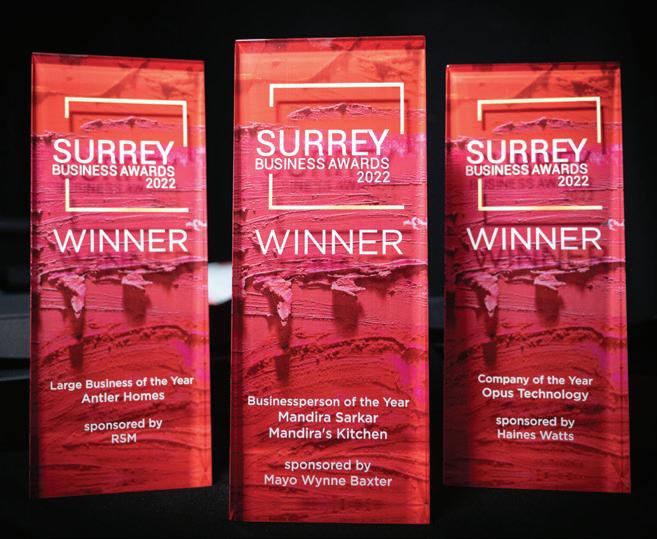

TICKETS NOW ON SALE
WWW.PLATINUMMEDIAGROUP.CO.UK










£120 EACH OR £1100 FOR A TABLE OF 10
Ticket price includes a champagne reception, three-course meal as well as entertainment and networking opportunities. Dress code is black tie.

❛❛ It is an incredible achievement and fantastic recognition for all our hard work and passion for a business that means so much to us. We are starting out on our journey and this award will give us the rocket fuel that we need to take our product global ❜❜
Signapse





Start-up of the Year Winner 2022
 Presented by actor and comedian, Hal Cruttenden
Presented by actor and comedian, Hal Cruttenden
12 Steven Bartlett
Platinum looks at the burgeoning career of the youngest Dragon in the Den, and whether he is all he says he is

NEWS
8 Local and international news
A round up of the important business stories in Sussex and around the world
EVENTS
2 Surrey Business Awards
Tickets are now on sale as judging gets underway for Surrey’s premier business awards
18 Sussex Tech Week 2024
Announcing a major new tech-based conference for the county
26 The Platinum Club
Now in its 15th year, and still going strong
38 Sussex Business Awards
Deadline for entries is closing fast. Have you entered?
42 Plumpton Racecourse
Make Plumpton your go-to venue for a day out FINANCE
20 EMC
Integrating an acquisition: how to ensure success

24 Kreston Reeves Management buyouts in insolvency situations
33 Haines Watts
What are the benefits of outsourcing?
EDUCATION
50 Help To Grow:Management
BUSINESS
34 Surrey Research Park
Surrey’s triple contribution towards Net Zero
36 Education & Skills Partnership
Transferable skills give you the edge
64 Let’s Do Business
Unlocking the power of Net Zero funding
67 Cleankill
Getting the job done properly should be the priority LEGAL
28 DMH Stallard
Gateway to a legal career
30 DMH Stallard commentary
Sale or private equity – which will deliver the best value?
40 Mayo Wynne Baxter
The myths of shareholder agreements
44 Loch Associates
Balancing between paying too much, to little and the legal amount
TALKING HEADS
54 Purpose Before Profit
Six of the industry’s leading experts debate what a business’ purpose should be, and where that purpose stands in relation to profits
22 Neil Laughton
Special Forces Commando-turnedentrepreneur has written his first book of personal adventures
INNOVATION
46 Sussex Innovation
Showcasing invention, innovation and product development
OPINION
68 Anger Management
Maarten Hoffmann expresses annoyance and incredulity at arbitrary ’debanking’
TRAVEL
70 Fantastic European casinos

A quick tour around the continent to find the best grown-ups’ playgrounds on the circuit
MOTORING
Platinum Business Magazine has an exclusive offer for anyone who wishes to take part in the University of Brighton’s 12-week mini-MBA programme to help you grow your business
72 Tesla Model 3
Yes, it’s quick off the line, but Maarten Hoffmann is struggling to come to terms with electric cars – especially the gimmicks…
All rights reserved. The views expressed in this publication are not necessarily those of the publisher. The publisher cannot accept responsibility for any errors or omissions relating to advertising or editorial. The publisher reserves the right to change or amend any competitions or prizes offered. No part of this publication may be reproduced without prior written consent from the publisher. No responsibility is taken for unsolicited materials or the return of these materials whilst in transit. Surrey Business Magazine is owned and published by Platinum Media Group Limited.

We were about to start this Welcome page with the great news of summer –but as summer seems to have passed us by, isn’t it great that we don’t have a hosepipe ban!
Experience tells us that this August issue is read on beaches across the world as South East business folk take a well-earned break and, of course, take their favourite magazine with them.
This issue looks at the enigma that is Steven Bartlett, while Head of Corporate at DMH Stallard Jonathan Grant, launches his new ‘plainspeak’ column about the best method for selling your company and, in the same vein, EMC Corporate Finance explain how to integrate that newly purchased business.
Haines Watts look at the benefi ts of outsourcing, Kreston Reeves details the issues with management buyouts in an insolvency situation, and Let’s Do Business explain how to unlock funding.

There is a wealth of invaluable information in this issue, and enough to keep you up to date should you be on that beach.
PUBLISHER/EDITOR: Maarten Hoffmann maarten@platinummediagroup.co.uk
COMMERCIAL DIRECTOR: Lesley Alcock lesley@platinummediagroup.co.uk
EVENTS DIRECTOR: Fiona Graves fiona@platinummediagroup.co.uk
EVENTS MANAGER: Žaneta Bealing zaneta@platinummediagroup.co.uk
TRAVEL EDITOR: Tess de Klerk tess@platinummediagroup.co.uk
PLATINUM MOTORING EDITOR: Maarten Hoffmann maarten@platinummediagroup.co.uk
DYNAMIC MOTORING EDITOR: Fiona Shafer fionas@platinummediagroup.co.uk
HEAD OF DESIGN: Michelle Shakesby design@platinummediagroup.co.uk
SUB EDITOR: Alan Wares alan@platinummediagroup.co.uk
A coalition of trade associations representing one million small businesses is urging the energy regulator to crack down on the rogue energy brokers who rip off firms by adding billions of pounds in hidden commission fees on to energy bills.

The groups have written to Ofgem demanding it force gas and electricity suppliers to disclose how much they are paying the intermediaries. They claim that these secret commissions have inflated energy bills and compounded the cost crisis facing SMEs.
This is after the Federation of Small Businesses and the British Chambers of Commerce warned that about a quarter of the UK’s SMEs are locked into poor value energy deals that were struck when gas and electricity prices were at their peak last summer.

Mobile operator Virgin Media O2 is to cut up to 2,000 UK jobs – around 12% of its total workforce – by the end of 2023. The figure includes 800 role reductions that were already announced.

The British company, was formed in 2021 after a merger between mobile operator O2 and broadband giant Virgin Media. The job cuts are due to the ongoing integration of those two businesses, as well as a wider drive to ‘improve efficiencies’. A Virgin Media O2 spokesperson said: “As we continue to integrate and transform as a company, we are currently consulting on proposals to simplify our operating model to better deliver for customers, which will see a reduction in some roles this year.”
The UK is on track to incur the highest debt interest costs among developed nations this year as constantly high inflation and an unusually large proportion of government bonds linked to price rises damage the public finances.
The Treasury is on target to spend £110bn on debt interest in 2023, according to a forecast by Fitch. At 10.4% of total government revenue, that would be the highest level of any high-income country. The UK claims the unwanted top spot after economic improvements by Iceland. In 2016, Iceland imprisoned 26 bankers on charges of a variety of offences for their part in the 2008 banking crisis.
Disability groups, city mayors and passenger groups are to take legal action against the government following the Department for Transport’s (DfT) plans to close almost all ticket offices across the UK rail network.

The groups cite a number of inconsistencies in both the data coming from the DfT, and the discriminatory nature of the consultation which precludes many people with disabilities from taking part. There are also concerns that no staff on railway stations will mean disabled passengers will have no opportunity to board a train.
The government has instructed train operators to close nearly all ticket offices at the UK’s railway stations, claiming there is no longer a need for them – a fact disputed by passenger travel groups.
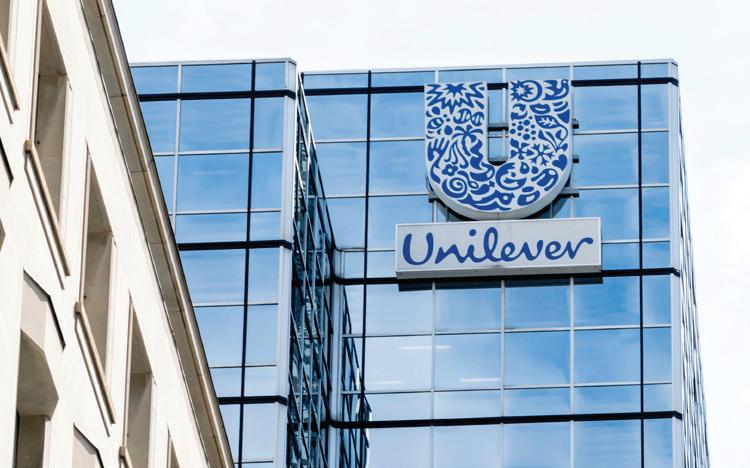
Unilever, the British consumer goods company, has reported rising revenues after it increased prices by nearly 10%. This is despite consumers, affected by the cost of living crisis, bought fewer products.
The FTSE 100 company said its underlying sales rose by 9.1% in the first half of 2023 compared with a year earlier. Price rises accounted for the entirety of the growth, with the volume of goods sold dropping by 0.2%.
Rising corporate profits have proved controversial as inflation has caused a cost of living crisis in many parts of the world. The International Monetary Fund recently found that rising corporate profits accounted for almost half the increase in Europe’s inflation over the past two years.

Twitter has changed its brand and logo from its famous blue bird to “X”. The new white X on a black background has replaced the blue bird on the desktop version of the social network, with the mobile app version following on.
“Tweets” will also be replaced, according to Twitter’s owner Elon Musk, and posts will be called “Xs”. Mr Musk, who has changed the name of the business to X Corp, said the replacement “should have been done a long time ago,” though no-one knows why.

❛❛ With reasonable men, I will reason; with humane men, I will plead; but to tyrants I will give no quarter, nor waste argument where they will certainly be lost ❜❜
William Lloyd Garrison, US abolitionist 1805
❛❛ The principal goal of education in schools should be creating men and women who are capable of doing new things, not simply repeating what other generations have done ❜❜
Jean Piaget, Swiss psychologist 1988
A major fire engulfed the Royal Albion Hotel on Brighton’s seafront on July 15th. Fanned by unseasonably strong winds, the fire took over 48 hours to bring under control. The damaged part of the Grade II* listed hotel will need to


be demolished for safety reasons, while the adjacent A259 is closed outside the hotel due to the risk of falling debris.
The demolition, initially thought to take three weeks, has been delayed due to
A business-led partnership, working to drive business growth in East Sussex has welcomed a new Chair to the Board.
David Sheppard, who served as Deputy Chair for Team East Sussex (TES) for the past fi ve years, has taken over the reins from Graham Peters.
In his role, David will oversee the development of the new East Sussex Economic Growth Strategy for the county, and support the transition of Local Enterprise Partnerships to local institutions. Working with partners, he will help to ensure the TES partnership continues to

support the delivery of economic growth across the county.
Since 2014, TES has been delivering support to businesses, residents and visitors, realising more than £820m of inward investment.
further problems at the site. According to Brighton & Hove City Council, the hotel has been subject to “further fires and additional collapses”, and made it difficult to provide a timeline on how long the entire process could take.
Gaydio Brighton, the leading LGBTQ+ radio station and part of the Gaydio network, has announced the appointment of Alex Ryan and Oli Halliwell to its board of directors. Both offer extensive experience and commitment to the LGBTQ+ community, and will contribute signifi cantly to the station’s development. Alex Ryan will also become Chair of the Board.
Speaking about the new appointments, Gaydio Brighton’s Director, Ian Wallace, stated, “We are thrilled to welcome Alex and Oliver to the board of Gaydio Brighton. Both bring unique skills and perspectives that will strengthen our organisation. As we continue to amplify LGBTQ+ voices, their contributions will be invaluable in shaping our programming, community outreach, and strategic direction.”

❛❛ Brighton has the perpetual air of a town that is helping the police with their inquiries ❜❜ Keith Waterhouse
Tourism development agency Sussex Modern, along with the Sussex Visitor Economy Initiative, has launched an ambitious campaign to vastly expand the current Sussex viniculture industry, while increasing the number of doors opened to visitors and tourists.

The campaign was launched at the House of Commons, with Conservative Sussex MPs hosting Sussex winemakers at the Palace of Westminster. Sussex currently has 888 hectares of vineyards, with the plan of using as much of the 40,000 hectares that are suitable for grape harvest as possible, giving the county enormous growth potential.
“Wine is an outstanding success story for Sussex. It has emerged as a world-class region for wine-producing and wine tourism,” said Nathaniel Hepburn of Sussex Modern.
❛❛
When you think about all the publicity about planes being dangerous to fly in, I wonder – why aren’t all of you dead? ❜❜
Prince Philip to cabin crew on a visit to Gatwick in 2000
Local water supplier, Southern Water failed to take home any of the awards it was nominated for at this year’s Water Industry Awards (WIAs). The WIAs are there to recognise – with a straight face – good work within the water industry with focus on practices that ‘protect and enhance’ the environment.
The supplier was up for three awards at the event in June but unsurprisingly, it did not win any of them. It’s astonishing anyone did. Serial polluter and ecological vandal Southern Water has been fined several times, and came under intense criticism after it pumped raw sewage into UK waterways 16,000 times in 2022.

Will work for attention ❜❜ Spoof meme about the Duke & Duchess of Sussex
Reviewers writing on online restaurant booking site OpenTable have given their opinions on their favourite restaurants across Sussex. Excluding Brighton & Hove, the top five places to eat by each half of the county are…
EAST SUSSEX
1. The Sundial, Herstmonceux (pictured above)
2. Landgate Bistro, Rye
3. Undercliffe House, Hastings
4. The Lounge, Bexhill-on-Sea
5. The White Hart, Battle
WEST SUSSEX
1. The Fig Tree, Hurstpierpoint

2. Don Domingo, East Grinstead
3. Masala City, Chichester
4. Safari Pizza Co, Haywards Heath
5. Ami Bistro, Worthing
❛❛ Palaceless couple, down on our luck.


 By Alan Wares
By Alan Wares




Steven Cliff Bartlett was born on August 26th, 1992 in Botswana to an English father and a Nigerian mother. His mother left school aged seven and could not read or write; his father is a structural engineer. He grew up in Plymouth, his family having moved while Steven was two years of age, attending a secondary school, Plymstock School.
He later went to study at Manchester Metropolitan University, dropping out after one lecture. He explained in an interview with The Guardian that he had looked around the room of hungover students and realised “this wasn’t going to take me to where I needed to go.”
How he got into Manchester in the first place is something of a mystery as he was expelled from his high school at 17 for poor attendance. Bartlett’s earliest forays into business were while still at school, running the school educational excursions, taking some of the funds for himself, while giving the rest back to the school.
Upon leaving Manchester University, he started Wallpark. It was an online social media hub that was supposed to link students across the UK – and the world – together. However, it was also something that struggled to gain traction, though it did offer Bartlett a fairly steep learning curve – one he picked up on fairly quickly.
“I envisioned Wallpark as a place where students from the same cities could connect, to share anything from advertising an event to selling old textbooks; a Gumtree for students.”, Bartlett said a year after the launch of Social Chain.

“Whilst working to grow Wallpark, one of the main things I learnt more about was the behaviour of young people on social media, on Twitter in particular. During this time I stumbled upon a Twitter page aimed at students run by a student at Edinburgh University; his name was Dominic McGregor. Dom was posting extremely funny and relatable student content that in turn attracted thousands of followers. I saw the opportunity to use these platforms to connect a brand with its audience.

❛❛ He was named in Forbes’ 30 Under 30 list, and has won prizes at prestigious awards ❜❜
“If there was a way to weave a brand’s message seamlessly into the page, and engagement and following wouldn’t suffer, I wanted to create it. I got in touch with Dom and shared my vision, and soon enough he ended up ditching his studies too. Together we set up Social Chain.”
So, in 2014, aged 22, he founded Social Chain in his bedroom in Manchester, with McGregor. The company is a social media marketing platform, offering innovative awareness and creativity products. The client list is impressive, and it led to the company’s rapid growth in terms of both reputation and financial success.
He was named in Forbes’ 30 Under 30 list, and has won prizes at prestigious awards including the Black British Business Awards and the Great British Entrepreneur Awards.
In 2017, he created a podcast series called ‘The Diary of a CEO’, which has a guest list whose alumni zeroes in mostly on entrepreneurs and other assorted success stories in the world of media, pop and business. By 2021, it was claimed to be Europe’s most downloaded business podcast.

The show’s high water mark for column inches was his interview with former Health Secretary Matt Hancock. In an unapologetic interview – with Hancock’s first consideration being to justify his behaviour having been caught kissing an aide during lockdown.
It certainly wasn’t an interview that did Hancock any favours, but it was one of the most downloaded podcasts in ‘The Diary of a CEO’s library, and gave Bartlett an astonishing scoop – one any experienced journalist would have gnawed their arm off for.


The show has also courted controversy when, on December 13th 2021, former Love Island contestant, and social media influencer (weren’t they once just called ‘celebrities’?) Molly-Mae Hague made comments on poverty and wealth inequality. She suggested that those less fortunate than herself in their upbringing only had themselves to blame for their lack of financial stability, stating that, “we all have the same 24 hours in a day.”
She was accused of being ‘tone deaf’ and the remarks led to calls for her resignation from her creative director role. For his part, Bartlett, as the show’s host, commented – somewhat glibly –that if a man had made these remarks, no-one would have said anything. The backlash, he suggested, was because Hague was a woman.
In 2019, Social Chain and German online retailer Lumaland merged to become The Social Chain AG, listing on XETRA and the Düsseldorf Stock Exchange. The listing valued the business at over $200 million. Bartlett’s website initially claimed that he took Social Chain public at age 27, before leaving the company after it reached a valuation of $600 million.
These claims were subsequently retracted after The Times reported that Bartlett had left the business more than a year before the flotation, and was not named in its prospectus. In February 2023, Social Chain was acquired by Brave Bison for an initial consideration of £ 7.7 million.
Steven himself has a different personal net worth. When he was 26 years old, Forbes magazine estimated that the entrepreneur was worth around £68m, while details of his current net worth are something less well calculated.
Since leaving Social Chain, Bartlett has been involved in a number of entrepreneurial ventures.
In December 2020, he created a private equity company called Catena Capital, then joined the board of directors
In 2022, Bartlett was invited on to the 19th series of the BBC entrepreneur programme Dragons’ Den. At the age of 28, he was the show’s youngest-ever dragon. He was invited back for his second series in January 2023.

“I’ve been watching Dragons’ Den since I was 12 years old - it was my first window into the real world of business and investing.” Bartlett told the BBC. “It’s a tremendous honour to join the Den, hopefully representing a new generation of entrepreneurs, inspiring young and specifically under-represented entrepreneurs to follow in my footsteps.”
of Huel, a £72 million food replacement company as a non-executive director.
Thirdweb, co-founded by Bartlett, raised $24 million in a funding round, that values the startup at $160 million, led by a $1.5 billion crypto fund. In 2023, Bartlett launched a £100 million fund to back European entrepreneurs.

❛❛ He had looked around the room of hungover students and realised “this wasn’t going to take me to where I needed to go ❜❜Right: Bartlett with the team on Dragons’ Den
Despite making his name by constructing successful businesses, the source of Bartlett’s actual business knowledge is not easy to pinpoint. He spends little time speaking publicly about his methods or approach, and instead focuses almost all of his energy on sharing his inspiring backstory. In short, until the age of 22, Bartlett is something of an enigma.

The Times has queried the validity of his stated fortune, citing public documents which show that Social Chain, the company he founded, sold for £7.7m, in stark contrast to Bartlett’s own words on Dragons’ Den, where he claimed: “I built a £300 million business at 28 years old!”.
James Hurley, Enterprise Editor of The Times, said in his investigation that “..the rise of Social Chain AG to a nine-figure valuation may owe more to mattresses and a wealthy 65-year-old media tycoon than Bartlett’s leadership.”
On February 13th, 2023, the paper reported that Bartlett is ‘not the tycoon he claims to be,’ and built and floated Social Chain with a market valuation in excess of $600 million. In return, the article became the subject of a legal complaint from Bartlett. Watch this space.
Bartlett was also written about by Sarah Manavis in The New Statesman as an entrepreneur who “styles himself as a business guru but beneath the clichés lies a thinly veiled craving for celebrity.” In a fairly hostile takedown of the entrepreneur, she called him ‘selfaggrandising’ and ‘cocky and smarmy’.
It’s fair to say, she is not taken with him. “He is, in reality, more of a bluffer than a prodigy — an influencer and motivational speaker masquerading as a marketing genius,” she opined.
It’s not a universally-shared opinion, though. Bartlett wrote the best-selling ‘Happy Sexy Millionaire’ in 2021 – a tome in which he states he is challenging convention, and correcting wellestablished lies. Book and podcast reviews all offer glowing testimonies to Bartlett’s success and writing. Four-anda-half out of five star ratings are fairly common across all platforms.
So where does Hurley’s and Manavis’ ire come from? Are they the only ones to peek behind the curtain, or is it a simple case of green envy at the success of one so young? If it is the latter, their satisfaction one way or the other will only ever be realised when one thing happens – Bartlett is too old to be lauded as a ‘young entrepreneur.’

❛❛ I’ve been watching Dragons’ Den since I was 12 years old - it was my first window into the real world of business and investing ❜❜

There is a widely quoted statistic from the Harvard Business Review that 70-90% of acquisitions fail. There are many reasons for this but neglecting to plan for the integration of the target is key amongst them. Glenn Mills of EMC Corporate Finance gives some guidance on how to ensure a smooth transition

The question of how to integrate a newly acquired business can easily be lost while company leaders and advisers focus on the terms and getting the deal done. Large companies have teams dedicated to the acquisition process and are likely to have learned from their experience of previous transactions. But it’s a challenge for an SME seeking to acquire a business and to continue running it as a subsidiary or division.

The best time to make a plan is during the due diligence (DD) phase. Questions for the target company will include what systems they use for finance, ERP and other functions; key stakeholders (e.g. personnel, customers and suppliers); and what compliance procedures they have in place. These are all essential for assessing the extent of the work required and feed into the transaction costs and timescales.
The executive teams of both companies will have been involved from early in the process but once the deal is done and announced, the rest of the teams need to come to terms with it. It can be an unsettling time and everyone will be concerned about the implications for their roles. It’s essential that the leadership immediately address the organisations to explain the reasons for the transaction and plans for the future. A written statement with FAQs can help with the communication, but there is no substitute for personal interaction and allowing time to answer employees’ questions. Providing the opportunity for staff to visit each other’s sites can also be of benefit.
❛❛ The question of how to integrate a newly acquired business can easily be lost ❜❜
During DD, your advisers will have asked questions about whether key customers might be “spooked” by the acquisition. Factors include the change in size and “power” of their supplier, concentration of orders, potential supply disruption, or simply concerns about a change to a long-standing relationship. Any fears can usually be allayed through timely contact. In fact, towards the end of DD, you may want to inform key customers (under non-disclosure agreements) to reassure yourselves of continuing sales.
Likewise, suppliers may be concerned about changes to payment terms, pre-qualification requirements or supplier consolidation. This is usually less critical to the success of the transition, as disruption to business is not in suppliers’ interests. Nevertheless, early communication will help avoid misunderstandings.
Every acquisition has a business plan behind it with the benefits quantified and hopefully with timescales for implementation. You and your team may have been stretched during the transaction and looking forward to a breather! But this post-deal period is just as important if the objectives of the deal are to be met. You need to make a start on these within the first couple of weeks, otherwise it is easy to lose momentum.
You will need to set up one or more teams to manage the integration programme. Your key executives will need to be involved, but you also need to keep your eye on the ball, ensuring that business is not disrupted. This is when advisers can be helpful, providing the experience and resource to support your team.
If restructuring or redundancies are needed, the earlier the processes are started the better. The business will suffer if staff are distracted for an extended period by worries about their future.


In some cases, the acquisition will be run “at arm’s length”, but usually at least some processes and systems need to be integrated. The most obvious is the finance system. There is considerable work involved in merging charts of accounts, migrating data and perhaps setting up group accounts for the first time.
Other systems integration depends on how synergistically the sales and operations of the two businesses will be run. If they are managed entirely separately, it is not a priority to bring both systems together. However, standardisation will bring long term benefits in system costs, support and use of best practice.
Another element of integration which can prove surprisingly time-consuming is branding and marketing. If you are looking to replace or supplement your acquisition’s brand, the obvious starting point is your web presence. However, when you take account of marketing materials, trading documents, vehicle livery, building signage, workwear and product labelling, it can be quite a task.
Finally, there will be compliance issues to consider where the acquired business may not have the same standards as yours. These include health, safety, quality, environmental, employment, ethical, data privacy, contractual, and other legal requirements.

By thinking through the range of tasks needed during the post-acquisition integration phase, business managers can be realistic about costs and timescales and “hit the ground running” once the deal is done. Bringing in advisers to help manage the programme can be an effective way to allow the executive team to focus on the business as a whole and ensure the acquisition achieves its objectives.
❛❛ The best time to make a plan is during the due diligence phase ❜❜
Neil Laughton will be known to many of you for his extraordinary work for charities across the South East alongside his Leadership Development courses. His good friend, Maarten Hoffmann reveals Neil’s latest endeavour…
I know Neil well and have been enthralled by his stories of the various adventures he has undertaken and his multiple entries in the Guinness Book of Records. Now at last, he has put pen to paper with his new book, Adventureholic.

I recall one particular time when, as a member of the Platinum Club, Neil was sent a reminder mail for that month’s meeting. I received a very calm and normal mail saying, “sorry, l can’t make it this month,” only to later find out that he sent the mail whilst trapped half way up Everest. An earthquake had occurred and he was caring for many people as they hid in a cave in fear for their lives. Recently, he asked me if l would like to join him paddle boarding down the Amazon (l said l was washing my hair and couldn’t make it!)
From hosting a record breaking dinner party on Mount Everest and playing golf at the Geographic North Pole, to piloting the world’s first road-legal flying car across the Sahara Desert, Adventureholic is an inspiration to all by the man who’s done it all.

Readers are invited to join Neil on a roller-coaster ride across the globe, gaining the necessary insight, confidence and inspiration to add a little more adventure into their own lives.
Adventureholic is filled with anecdotes in which Neil reminisces about the successes and failures he’s faced as an explorer, and at the end of each chapter, he reveals the key lessons he’s learned along the way. With adventuring top tips and cautionary tales, Adventureholic is a textbook on how to be adventurous – it just requires the reader to take the first step.
Neil’s next adventure takes him on a 400-mile charity cycle from Odessa to
❛❛ I received a very calm and normal mail saying, ‘sorry, l can’t make it this month’, only to later find out that he sent the mail whilst trapped half way up Everest ❜❜
Chernobyl on his infamous Penny Farthing. Travelling from September 11th–24th, Neil will be stopping off in Kyiv along the way to host a book launch and celebrate the publication of Adventureholic. This particular expedition aims to raise money for Siobhan’s Trust – Ukraine, who provide food and practical support to the huge number of displaced Ukrainians around the world.
Neil is a former Royal Marines Commando, helicopter pilot and Special Forces officer. He then became an entrepreneur, founding a dozen businesses in a variety of industries. He is currently focusing on building floating houses, running the Penny Farthing Club and mentoring business

owners/CEOs. His lifelong passion for adventure has led him to organise and lead more than fifty expeditions on seven continents by land, sea and air, the most exciting of which are featured in this book.

❛❛ A man who has truly battled to live life to its full capacity, every gritty inch of the way ❜❜ Bear Grylls OBE
❛❛ A wonderful reminder to say “yes” a little bit more in life ❜❜
Sir Richard Branson
❛❛ Wonderful stories exploring Planet Earth ❜❜ Major Tim Peake CMG
❛❛ Seriously Inspirational ❜❜
Sir Ranulph Fiennes OBE
Adventureholic by Neil Laughton is published in hardback by White Fox Publishing on October 12th, £20

When dealing with an insolvent company, the Insolvency Practitioner’s principal duty is to maximise the returns for creditors, a key step is to maximise recoveries in respect of the assets.
By James Hopkirk, Restructuring Partner of Kreston Reeves
It is often the case that the director of the company shows an interest in acquiring the underlying business, and some or all of the assets. Achieving a sale on that basis can be an effective way of realising the greatest value - a director will likely have the deepest knowledge of a business and its potential and therefore may see it as having a greater value than another party with more limited knowledge who might see the opportunity as more speculative.
Alongside the directors, there may be staff who have the desire and means to acquire all or part of the business, and we have acted in a number of instances recently where this has been the case. However, dealing with employees in this scenario can give rise to different challenges.
A sale of an insolvent business is, by its nature, a time pressured exercise. An employee without access to personal funds is likely to require external finance which can add to the complexity and cost of a deal.
Moreover, an employee without a business background may struggle with the concept of having to pay some value to acquire an insolvent business, especially where it is likely that they’ll need to make payments to key suppliers to preserve the business.
We are able to make introductions to various finance providers to suit the needs of the individuals. We are also committed to being transparent and clear in our dealings so that a management team can have confidence that they are getting value from the transaction.
We are always keen to ensure that any purchaser is receiving sensible advice regarding financing a deal and the legal aspects of the sale agreement.
In our experience, employees may not have an appreciation of the value in paying for good advice. Also, they often expect the Insolvency Practitioner to provide a certain level of advice on various matters, for example in relation to the level of consideration that they will have to pay.
To maintain independence and a competitive market when acting for an insolvent company, we cannot provide the purchaser with advice and cannot, for example, share a copy of a valuation which will have been obtained. However, we can recommend a solicitor or other advisor who will be able to assist the management team in identifying issues and understanding how they can be resolved.

We have found that employees making up a management team can tend to be very risk-averse in their negotiations and can be wary when there is any uncertainty with the sale, for example on the question of whether any employees will transfer to the purchaser.
An Insolvency Practitioner will almost always be selling a business in the unusual circumstances where they have very limited knowledge, and the records of the company may not be
❛❛ A sale of an insolvent business is, by its nature, a time pressured exercise ❜❜
up to date. A purchaser of an insolvent business will need to take on a level of risk in relation to any unknowns and this may not sit well with a management team where the individuals are used to being employees.
As above, we find that being clear on the parameters and also recommending suitable advisors can avoid barriers arising.
The purchaser of an insolvent business is likely to have to undertake a review of the operational aspects of the business and quickly establish whether any changes are required. Ideally, the management team will have a good spread of experience and knowledge of the business, but they may not be used to having the kind of overview required to run the business and make decisions.
We are able to discuss these issues with the purchaser and, if there are gaps in the management team, share ideas as to how that might be addressed.
The management team looking to acquire the business will need to consider whether they will be viewed as credible by suppliers and customers, when the company’s reputation may already have been tarnished in the lead up to a formal insolvency.

The purchaser will need to quickly identify stakeholders who they wish to do business with and issue statements which set out their intention to move forward with the business. In some circumstances, there might be a tendency to lay blame on the previous owners, or to avoid mentioning the insolvency of the company in question.
Using our experience of these matters, we can provide some guidance to the purchasing team to ensure that all communications are measured in tone and factually accurate in order to avoid creating more difficulties.
A management buy out may be a useful option to extract value for creditors when a company becomes insolvent. As with any sale process, issues will arise but an experienced Insolvency Practitioner should be able to help a management team to identify likely problems at an early stage, and to help them obtain appropriate advice to ensure that the issues don’t scupper a good deal.
❛❛
THE PLATINUM CLUB IS A REALLY WELL ORGANISED NETWORKING GROUP, WITH THE HOSTS HELPING TO FACILITATE TO ENSURE WE ALWAYS MAKE USEFUL, NEW CONTACTS AT EACH EVENT ❜❜ LLOYDS BANK








The Platinum Club is now in its 15th year and remains the pre-eminent networking forum in Sussex.






The Club launched based on no seated meals, no sponsors and no speeches - rather, an elegant but informal cocktail party with delicious hand-made canapés and Platinum hosts making relevant introductions throughout the evening and all in the luxurious surroundings of the Grand Hotel, Brighton.


TO APPLY PLEASE EMAIL

info@platinummediagroup.co.uk


❛❛ ALL BUSINESS IS BASED ON RELATIONSHIPS AND PLATINUM GIVES YOU THE PLATFORM TO CREATE THE MEANINGFUL HUMAN CONNECTIONS THAT MATTER

The


Club is membership only and we are now releasing more memberships.


Membership is available to senior business leaders, Directors, Managing Directors, CEO’s of companies large and small. We accept four members per sector and many of them have been full and closed for the past 10 years.





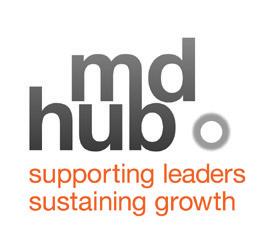








❛❛ WE SEE THE PLATINUM CLUB AS AN IMPORTANT AND INTEGRAL PART OF OUR BRAND AWARENESS STRATEGY, THROUGH INTERACTIONS WITH WELL CONNECTED BUSINESS PEOPLE AND OTHER INFLUENCERS. IT IS WELCOMING AND GREAT FUN TOO! ❜❜ MATTIOLI WOODS
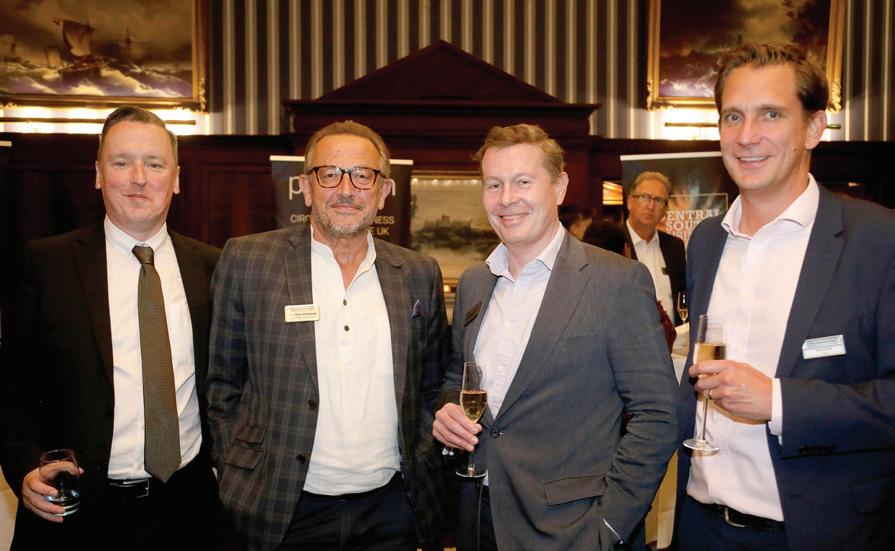
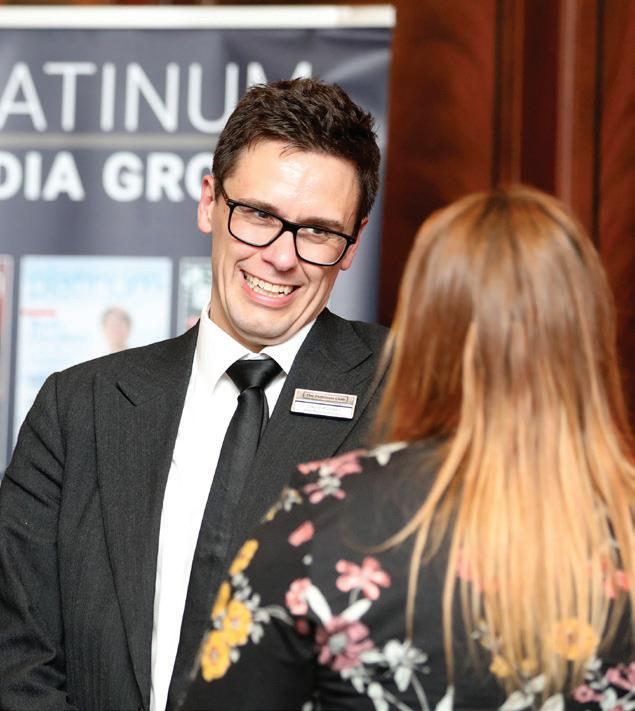

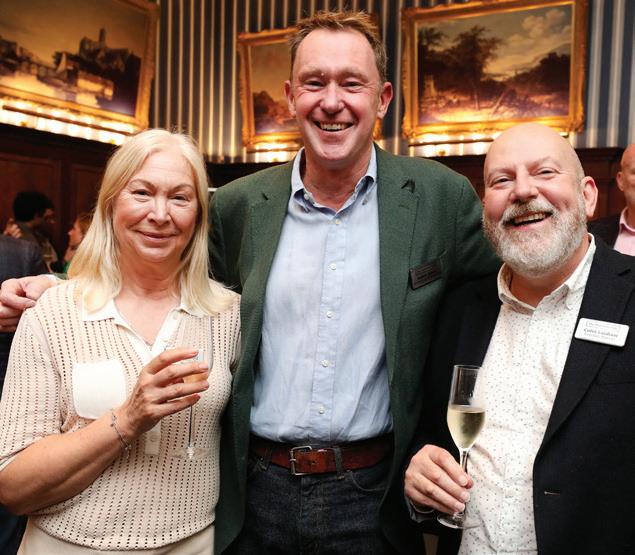
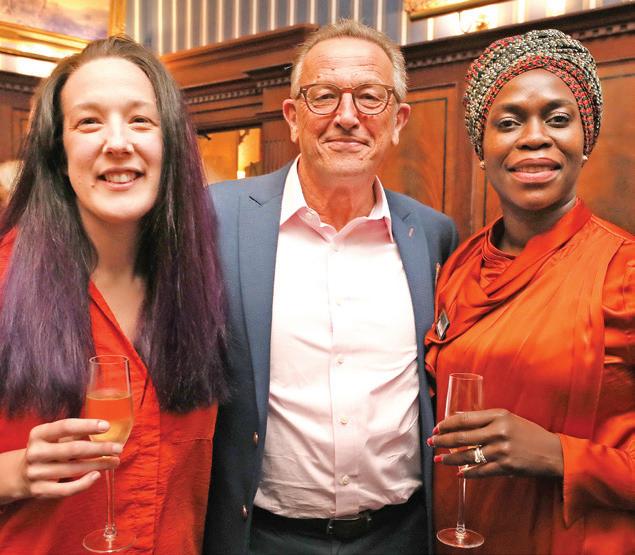
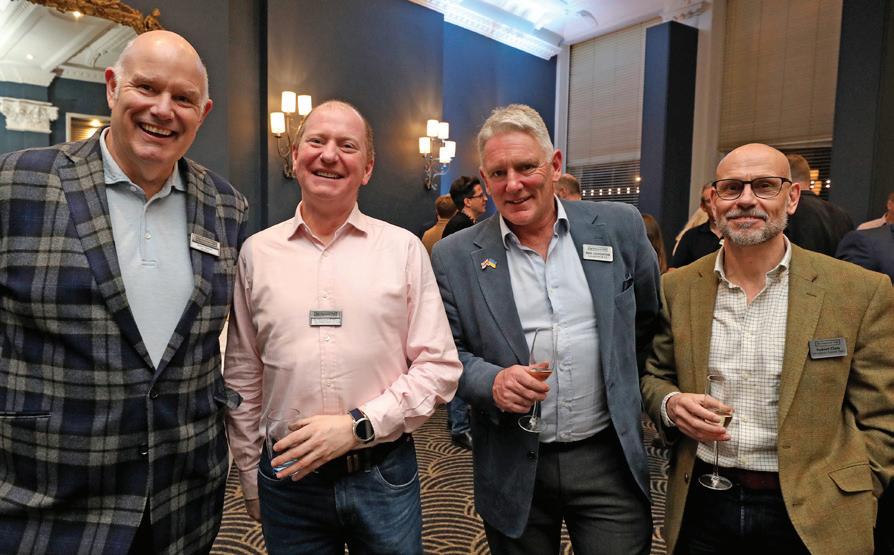
❜❜ BAILEY AND FRENCHPlatinum Barry Carden, Partner, Galloways; Nigel Lambe, CEO, Sussex Innovation; Neil Laughton, CEO, Laughton & Co; Rob Clare, Director, Innovation Capital Team Donna Holland, CEO, Rockinghorse Children’s Charity; Maarten Hoffmann, Managing Director, Platinum Media Group; Senda Kavindele, Senior Partner, KPMG Lesley Alcock, Commerical Director, Platinum Media Group; Adam Jones, Principal Lecturer, University of Brighton; Colin Laidlaw, VAT Director, Kreston Reeves Maarten Hoffmann, Managing Director at Platinum Media Group; Kirsty Sadler, Regional Director at Lloyds Bank John O’Connor, General Manager, Watches of Switzerland; Maarten Hoffmann, MD, Platinum Media Group; Jonathan Grant, Partner, DMH Stallard LLP; Neil Kester, Financial Reporting Director, RSM UK David Boosey, Partner, MHA MacIntyre Hudson
Every year approximately 800,000 students graduate, and many leave university unsure of their next steps. For others who do have a clear idea of what they want to do, some want to become a solicitor, but struggle to secure the training contract they need. Amanda Smith, HR Director at DMH Stallard explores the options
The pathway to becoming a solicitor in the United Kingdom is highly competitive; it requires academic excellence, perseverance, financial commitment, and the ability to thrive in a competitive and exacting environment.
In 2021, 6,981 individuals were admitted to the Solicitors Regulation Authority (SRA) roll and 21,650 UK students were accepted onto law courses, so the competition to become a solicitor is high*. The number of training contracts available in the UK does not meet demand and an increasing number of determined students are looking for alternative routes to enter a career in law.

Alex Robinson joined DMH Stallard in January 2022, and worked in office services for eight months prior to moving to our Family Team, London in August 2022. She secured her training contract in April 2023. Alex worked within the

firm as an Office Services Assistant, working across all locations. She said: “Ultimately, I wanted to become a paralegal and eventually qualify, but I felt a role in office services would be a great first step into law.
“I had graduated with an LL.B Law degree, and I knew that I wanted to qualify as a solicitor in the future. However, I did not feel that my CV was strong enough to apply directly for paralegal roles nor training contracts. I had no experience of working in a law firm before and I felt that my application would not stand out against other applicants”.
Amelia Mahraj, joined DMH Stallard in August 2022 as an Office Services Assistant, working in one office and now she works as a paralegal. She said, “I took the office service position to get a foot in the door and I have no regrets as I have thoroughly enjoyed working with my colleagues and have learnt so much. It gave me insights into specialist areas of the law that I would not have had the chance to be involved in, had I not taken that initial position”.
“My advice for someone who is in a similar situation is that sometimes taking a step back enables you to take several steps ahead in the future. Do not let rejection stop you from believing in yourself and achieving your goals”.
❛❛ In 2021, 6,981 individuals were admitted to the Solicitors Regulation Authority (SRA) roll ❜❜
It provides the opportunity to visit different offices, often working in 2-3 different locations per week. This variety keeps things interesting and allows the post holder to build a network of colleagues across the firm. They gain first-hand experience of how a law firm functions, all areas of law, and will become conversant with workplace terminology and processes, such as case management systems. This is invaluable experience and allows you to stand out when applying for training contracts or paralegal roles, and helps you decide what area of law might be of interest to you.
For committed candidates, this role can provide a springboard to becoming a lawyer. You can apply to be a paralegal in an area that interests you and then apply for a training contract. Alternatively, you may apply directly for a training contract, knowing that you can show you have the experience and communication skills needed from your time in an office services role.

Not all law firms are the same. Some recruit from the graduate pool and fill their training quota traditionally, other firms offer less conventional routes. It is important that any candidate with aspirations to become a solicitor does their research and, if they secure an interview, are transparent about their ambitions.
Amanda
would encourage all aspiring lawyers to think about joining the firm in one of our office services roles; it will help build confidence and skills to help you standout from the crowd when you apply for training contracts. It will demonstrate your commitment and determination to succeed and, of course, at DMH Stallard, we try to fill all our training contracts internally.”
DMH Stallard has a history of helping motivated graduates from all backgrounds to fulfil their ambitions. Enthusiasm, a commercial outlook, good communication skills and adaptability are all essential skills and usually all of our trainees are recruited from the internal pool of paralegals.
* Source: SRA
If you are interested in hearing more about roles within office services please email HumanResources@dmhstallard.com

❛❛ Sometimes, taking a step back enables you to take several steps ahead in the future ❜❜
deliver
The choice for those outside the corporate finance community is often shrouded in mystery. Where will I get the best price? What will each of these deals mean in practice? Many experienced private business owners don’t have previous experience of different deal types, and sometimes don’t like to ask the obvious questions (How will prices be calculated/vary? What will the impact be on my staff? What type of deal does my business suit?).
Trade sale is typically more straightforward, with cash on completion, supported by deferred money, or earn out. However, the buyers will typically impose their own culture and management, which can be disruptive for the target business. If there are real synergies and growth opportunities, a trade deal can provide management and finance to support growth, thereby increasing the target’s value.

Private equity (PE) involves both a sale transaction, and an investment agreement; the latter regulates the relationship between the PE house and the management team after completion. PE may pay more than trade and will be attractive where the target company can grow quickly, contains ambitious/capable managers, or is capable of consolidating a sector. The quality of the management team is always decisive for PE.
PE will look to generate investment returns, typically in three to fi ve years, whereas trade can take a longer view. PE will also introduce industry expertise and business connections beyond that available to most businesses. Typically, PE will introduce senior non-executive directors to the board, who can bring invaluable experience.

PE is also more likely to preserve the culture and leadership of a business they invest in, but at a cost, in terms of the PE investors required return on investment (generally the reason it suits a business which has the potential to grow quickly).
A large trade buyer is more focussed on the combined buyer group, rather than the individual target business. The target is able to deliver synergies and build on the purchaser’s broader operational base over time.
If you would like to discuss any of these themes further, please get in touch
will
the best value?
❛❛ Private equity involves both a sale transaction, and an investment agreement ❜❜Jonathan Grant Partner and Head of Corporate
Outstanding legal advice for individuals, families and businesses.
We make it our business to know your business, working with you to add value and to deliver tailored legal services with energy and creativity whether you’re an established market leader or an ambitious start-up.






Your family’s security and wellbeing are your priority. And we have the legal skills and knowledge to support your plans and the challenges life brings.
Please call or email to discuss how we can help you:
03333 231580 enquiries@dmhstallard.com




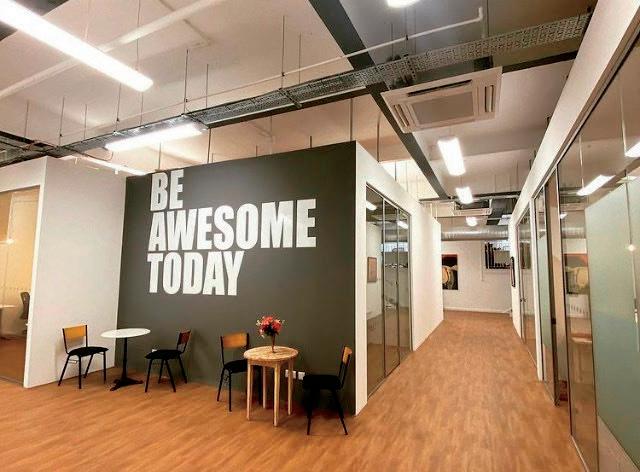









Outsourcing has become an increasingly popular strategy for businesses of all sizes and industries, offering numerous benefits and advantages.
Hiring and maintaining an in-house finance team can be costly with financial responsibilities such as salaries, benefi ts, training and pensions adding up quickly. By outsourcing, you can reduce these expenses significantly. Outsourcing providers typically offer flexible pricing structures, allowing you to pay for the services you need without the additional overhead costs.

Finance is a complex field that requires specialised knowledge and skills. Outsourcing the finance function gives you access to a team of experts who also benefit from knowledge gained across a range of different clients and industries.
As the leader of your business, your primary focus should be on the overall direction and strategic goals. By outsourcing your finance function, you can free up your time and resources. This allows you to concentrate on growing your business and deploy existing team members to tasks where they can have the most impact.
Business needs are constantly changing, and the finance function must adapt accordingly. Outsourcing offers scalability and flexibility, allowing you to adjust the level of service based on your business requirements. Whether you need to expand or downsize your finance operations, an outsourcing provider can easily accommodate these changes, filling gaps when they appear and reducing service during down-time.
Keeping up with technological advancements and maintaining robust financial systems can be expensive for small and medium-sized businesses. Outsourcing allows you to leverage the latest technology and infrastructure without the high costs. Outsourcing providers invest in state-of-the-art financial software and tools, ensuring accurate and efficient financial operations.
To get the most value out of the relationship, your outsourced fi nance function should become a key part of your team. A good provider will be entrenched in your day-to-day activities and understand your objectives in order to tailor their service to your goals.
Your needs will change as your business evolves and grows, and an outsourced fi nance team can support you at each step. For example, if your business is looking to seek new funding then perhaps additional FD support will be needed for a short time to get you through the process.
To fi nd out more about how an outsourced fi nance function can support your business, get in touch.
www.hwca.com/accountants-esher

T: 020 8549 5137
E: esher@hwca.com
The University of Surrey is playing a role in three new national energy research centres which will boost knowledge, create innovative green technologies, and reduce demand for energy to achieve greener, cleaner domestic, industrial and transport energy systems
Academics at Surrey will help fairly reduce the energy used in the UK, develop hydrogen and ammonia as alternative fuels, and boost bioenergy production.
Professor Jin Xuan, Associate Dean (Research and Innovation) in the Faculty of Engineering and Physical Sciences, said, “There’s no single route to net zero so, at the University of Surrey, we’re involved with a wide range of interdisciplinary projects to find a portfolio of sustainable solutions. This latest funding shows we’re at the forefront of creating a sustainable future for everyone.”
UK Research and Innovation (UKRI) has recently announced a £53 million investment in six research centres which will lead innovation towards a fully sustainable energy sector. The University of Surrey is involved with half of them.

Reducing energy use could help meet half of the required reductions we need to reach net zero emissions by 2050, and the University of Surrey is helping ensure that disadvantaged people aren’t left behind as the UK’s energy demands are reduced.
Dr Lirong Liu, a lecturer at Surrey’s Centre for Environment and Sustainability, will use AI to create models to help communities make scientifically informed decisions, comments. “Our new optimisation model will incorporate multiple objectives to balance society’s many needs so we can maximise equity while minimising cost and greenhouse gases.
“To achieve this, we need to understand technology, economics, environment and behaviour and to recognise different parts of society. It’s not just about technological developments, but also about creating a better, more equitable world,” she comments.
❛❛ UKRI recently announced a £53 million investment in six research centres. The University of Surrey is involved with half of them ❜❜

Dr Qiong Cai, a research leader in sustainable energy and materials, is working with industrial and academic partners to identify how we can decarbonise transportation and heavy industry by using green hydrogen and hydrogen-based, low-carbon liquid fuels, such as ammonia. She comments: “Hydrogen and alternative liquid fuels, through combustion, can provide clean heat and power sources for decarbonising heavy industry, aviation, maritime, and haulage sectors. These are difficult to decarbonise using electric batteries.
“We’re developing durable and lowcost catalysts to promote ammonia combustion and to enable zero-emission of hydrogen and ammonia combustion.
Together with industry partners and academic collaborators, we’ll develop innovative solutions that are safe, acceptable, and environmentally and economically sustainable.”
The University of Surrey lecturer, Dr Michael Short, one of the technical project leads, will work on the rapid digitalisation of bioenergy, creating a collection of open-source models for enhanced decision-making across the biowaste sector. This will be informed by his work using artificial intelligence to boost biogas production in anaerobic digestors.
He comments: “We can make so much more of bioenergy, particularly if we can develop better predictive models of the complex reactions in bioenergy systems. If we can increase digitalisation and leverage advances in AI and optimisation, we can have more efficient sustainable energy generation from renewable sources, as well as improved energy security and boosted profits for the companies involved.”
https://surrey-research-park.com

❛❛ There’s no single route to net zero so, at the University of Surrey, we’re involved with a wide range of interdisciplinary projects ❜❜
What are transferable skills and why are they important in the workplace? The Education and Skills Partnership (ESP) delves a little deeper…
It has become increasingly important for an employee to possess a set of skills that can be applied across different job roles and industries. Known as transferable skills, these skills are useful for a variety of professions and can help give you an edge over the competition.
Quite simply, transferable skills or ‘soft skills’ are the abilities developed throughout your career which can be transferred and applied to different contexts. These are not limited to a specific job title or industry, so let’s break down some essential transferable skills.
n Customer service skills
These particularly valuable skills include being able to measure effectiveness, build brand and influence people. They mean the skill holder can articulate ideas clearly, listen actively, and convey information effectively. These are useful for customer or public facing roles, who have to collaborate with or influence external and internal stakeholders.

n Project management skills
These skills come in handy in any industry, helping to prioritise and track tasks, meet deadlines, and efficiently allocate resources. Having these skills helps to ensure productivity and reduce stress for everyone involved. ESP’s latest simple course ‘P3.Express’ supports project planning and collaboration.
n Strong leadership skills
These encompass the ability to inspire and motivate others and make informed decisions. This is relevant in management positions, project leadership, team coordination, and can lead to a departmental lead, team manager, even an event organiser. ESP’s ‘Leadership and Management’ courses help individuals effectively manage teams with confidence.
n Coaching skills
Being able to collaborate and work in a team helps to achieve common goals and fosters a peaceful and productive work environment. These skills are transferable across leadership and management roles.

n Operations management skills
Being able to gather and evaluate data to make informed decisions and solve complex problems are examples of good operations management skills, coupled with the ability to objectively analyse information, evaluate arguments, and lead change. Our ‘Operations Manager Level 5’ course is ideal for building management skillsets.
❛❛ It has become increasingly important for an employee to possess a set of skills that can be applied across different job roles ❜❜
An investment in transferable skills is an investment in your business. By developing transferable skills, employees are able to adapt to new opportunities and challenges. The benefits of having employees with transferable skills are numerous.

• It can build agile teams that will be dynamic, innovative, and able to tackle tough projects, working towards a goal together, which fosters inclusion and collaboration, and leads to increased employee satisfaction and productivity.

• You are essentially building a talent pool within your organisation that can move seamlessly into different teams or departments.
• You’ll be able to keep up with market shifts more efficiently, which is crucial since businesses are quite prone to volatility at times.
Skills can be applied in different scenarios, let’s take a look at some:
Are you a military veteran? It’s important to remember that transferable skills are not exclusive to any specific profession. Veterans have acquired valuable transferable skills during their service that can be applied to the civilian workforce.
Two skills that are prominent with former military personnel are project management and effective communication, both well-ingrained in military training. Managing and delivering projects on time and efficiently and being able to communicate important information quickly and clearly makes veterans valuable assets in civilian roles in any industry.
Looking to transition careers? Transferable skills can make career transitions easier and provide new paths for professional development. For example, having basic teacher training can open doors to various positions – in nursery schools, coaching, learner development roles, or as a teaching assistant.
As we enter the summer holidays, you might find yourself with extra free time, perhaps in a transitional phase of your life and trying to figure out what to do next. Why not better yourself by developing transferable skills?
Consider Free-Courses-For-Jobs, refresher courses, introductory programmes, or even structured courses that equip you with essential, transferable skills. Level up your skill set, enhance your CV and be ready for whatever opportunity might come your way.
So, how can employers facilitate the acquisition of transferable skills among their staff? The Education and Skills Partnership (ESP) is passionate about learning and development. We work with employers and employees alike to design a training and education programme that fits the needs of both parties.

We offer courses tailored to meet your company’s needs, covering a range of skillsets, including those mentioned above and more.
To discuss how we can support you on your journey of developing transferable skills, get in touch with our team for a free consultation.
https://esp-ac.uk
❛❛ Transferable skills can make career transitions easier and provide new paths for professional development ❜❜

COMPANY OF THE YEAR

Sponsored by
CFO OF THE YEAR

Sponsored by
BUSINESSPERSON OF THE YEAR
Sponsored by
BUSINESS INNOVATION OF THE YEAR
Sponsored by
The winner of this award will be selected from the finalists in all the other categories. This award will be chosen by the sponsor and recognises a business they feel stands out as an inspiration to other businesses.
MEDIUM BUSINESS OF THE YEAR
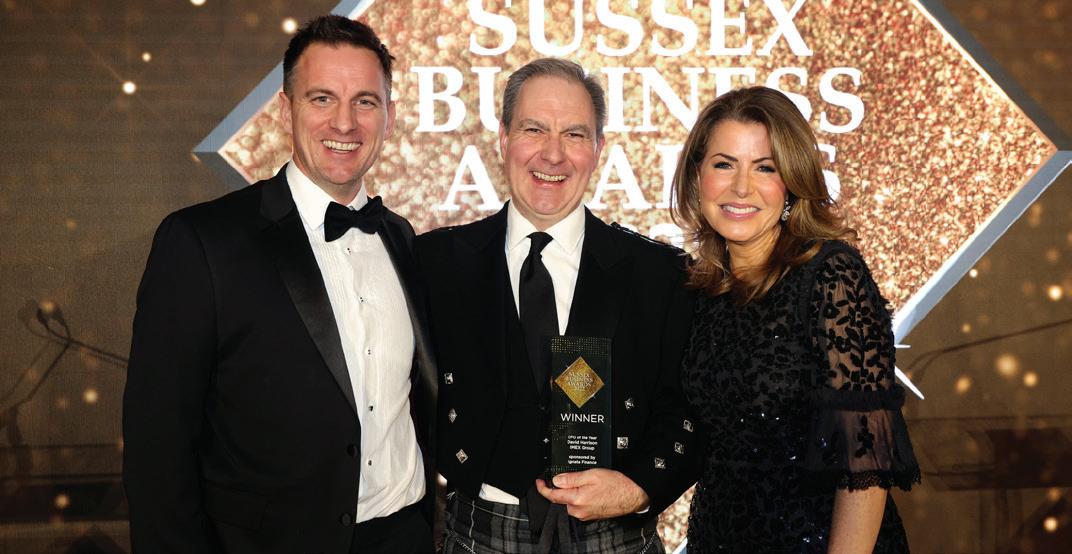
Sponsored by
This award aims to recognise a business that has demonstrated outstanding achievements in all aspects of their organisation (turnover between £500,000 and £5million).

This award aims to recognise the CFO who has had the most positive impact on people, profit and environment. The individual will have inspired and influenced the people around them to achieve growth and build a sustainable business of the future.
SMALL BUSINESS OF THE YEAR
Sponsored by
This award recognises an exceptional individual, either a successful entrepreneur or senior manager, who has made a significant impact on their business and can demonstrate outstanding achievement whilst inspiring others around them.
EMPLOYER OF THE YEAR
Sponsored by
This award recognises a business that has made significant strides in their field, be it developing a new product or by introducing a new process or system to an existing business.
BUSINESS GROWTH AWARD
Sponsored by
This award aims to recognise a business that has demonstrated outstanding achievements in all aspects of their organisation (turnover under £500,000).


This award recognises a business that has created a healthy and supportive work environment with a genuine commitment to the wellbeing of its employees.

This award recognises a business which, through outstanding vision and leadership, has achieved significant and sustained growth.
❛❛ While the work of the IMEX Group is on a global scale, it’s a family-run company that’s firmly rooted in the local community – that’s why this recognition is particularly significant ❜❜
DAVID HARRISON OF IMEX GROUP CFO of the Year 2022
ENTRY DEADLINE SEPTEMBER 20TH 2023
VIEW CATEGORIES ONLINE
WWW.PLATINUMMEDIAGROUP.CO.UK
Sponsored by
THE YEAR
Sponsored by
Sponsored by
Sponsored by

FINANCE
This award recognises a business that exceeds customer expectations in all areas of the business by providing the very highest level of customer service.
Sponsorship reserved
This award aims to recognise a business that has demonstrated outstanding achievements in all aspects of their organisation (turnover over £5million).
This award recognises a business based in, or conducting the majority of its overseas business from, an operational base in Sussex. The company should demonstrate healthy import/ export activity and good trading relationship with any country outside of the UK.

Sponsorship available
This award recognises excellence in the regulated sector management underpinned by a strong financial performance and adherence to a professional code of conduct. This category covers a wide range of professional services including legal, financial, recruitment and consultancies.
BUSINESSES CAN SUBMIT UP TO THREE SUBMISSIONS
£25 PER ENTRY
This award recognises a businesses which operates in the creative and digital sectors (PR, advertising, architecture, art, crafts, design, fashion, f ilm, music, photography, performing arts, publishing, software, toys/games, TV/radio and/or video games).

Sponsorship available
This award recognises an individual or business whose contribution to society makes a substantial difference to the lives of others.
This award aims to recognise a CEO that has demonstrated excellent performance against multiple criteria – financial, reputational, employee engagement – balanced with a clarity of leadership.

Sponsorship available
This award recognises a business with entrepreneurial aptitude, vision, ambition, drive and commercial acumen to build a successful enterprise from start-up.
AWARD
CEREMONY
NOVEMBER 30TH THE GRAND
BRIGHTON
“Err, because everybody does?” was the answer given to me by a client when asked why he wanted a shareholders’ agreement (SA) for his new company. I don’t want to take (gluten free) bread out of the mouths of starving lawyers, but don’t always assume that you need an SA.
James O’Connell,Partner at Mayo Wynne Baxter debunks some common myths


For the uninitiated, a typical SA is a legally binding contract between shareholders, outlining shareholder rights, responsibilities, and obligations.
Whilst a company’s articles of association govern the overall structure and rules about how a company is run (e.g., the proper process for calling and voting at a shareholders’ meeting), an SA is an optional document that addresses the preferences of shareholders. It covers whatever the shareholders want it to cover: rules about offering shares for sale to other shareholders first (called pre-emption rights), who gets to be a director, whether shareholder permission is needed to hire senior staff, what percentage of votes is needed to pass resolutions on specific matters, etc.
If your company has a number of shareholders, then an SA may well be a good idea (at least for the otherwise powerless minority shareholders, anyway). Most businesses enter into SAs at the outset, when everyone is on the same page, full of hope and hypercollaborative – in other words before reality bites.
So many new companies follow a similar trajectory – at the outset they are commune or kibbutz-like: all burning the midnight oil together to get their fledgling to fly, shoulders to the wheel and all that, but the fallings-out tend to happen later. Ironically, this is more so when the company starts making money – because then there is something to fight over.
❛❛ The main purpose of most SAs is to have Gulliver tied down by the Lilliputians ❜❜
The main purpose of most SAs is to have Gulliver tied down by the Lilliputians. Let me explain – though it does involve a smidgen of company law. Under the main law defining company regulations (the Companies Act 2006), most matters can be decided by the board of directors, but the 2006 Act says that some things need shareholder approval (e.g., issuing new shares or changing the articles).
Most things are decided by majority vote of those attending a meeting and voting; so, 51% if all shareholders are present at the meeting and vote. These decisions are called ordinary resolutions. Some topics need 75% (called special resolutions). So, if you own 51% of the shares you are Gulliver, the undisputed boss, probably 98% of the time. If you own 75% then you are always Gulliver the boss. You get to call the shots. Signing an SA would be to allow the Lilliputians a voice and to give them, in effect, a power of veto most would not otherwise have.
My advice to majority shareholders is ‘don’t give away your power too easily’ – especially if, as is often the case, the company is your vision, your drive, and your project – and the others are
enablers. Maybe they are genuine partners, in which case – fine, but often they are not co-visionaries, they are just doing a job. Reward them, but don’t give away your project to the hired help. I am sorry if that sounds harsh, but too often I see people riding on the coattails and wanting control and reward out of all proportion to their contribution.
The other situation where an SA is frequently entered into when it is often not needed, is if there’s just the two of you: both directors and 50-50 shareholding. You each effectively have complete right of veto over everything, so entering an SA that gives you a right of veto doesn’t add anything.

The only time that it really makes sense have an SA when there is just the two of you is if you want to future-proof
something that is not covered in the articles or elsewhere, e.g., pre-emption rights where you want to lock in the provision that if either of you wishes to sell your shares they have to be offered to the other first.

I would say though that if you do find yourself creating an SA to lock in certain provisions because you think that the relationship with your business partner won’t always be quite as collaborative, then listen to your gut’s paranoia, and build in some other protections as well. For example, make sure that you personally own the company’s intellectual property rights. That way if you are kicked out of your own business – believe me, it happens –you can usually stop the coup plotters in their tracks by withdrawing the rights of the company to use essential brand names etc.
Whilst we are talking about SAs, as a general point, try not to use your SA as a partial contract of employment. It’s like trying to use a tractor as a taxi. Sure, there are superficial similarities, but it rarely gets the job done.
For further information contact James O’Connell, Partner Mayo Wynne Baxter joconnell@mayowynnebaxter.co.uk www.mayowynnebaxter.co.uk

❛❛ Try not to use your SA as a partial contract of employment. It’s like trying to use a tractor as a taxi ❜❜
Plumpton Racecourse is the ideal venue for any event: our versatile indoor and outdoor spaces can accommodate conferences and meetings, exhibitions and live events, weddings and celebrations, team building days, product launches, festivals, sporting events and more


The Plumpton Collective offers a choice of fantastic indoor and outdoor settings, complemented by culinary delights and a dedicated team of experienced professionals. An expanse of over 80 acres of beautiful parkland affords plenty of choice for your needs, whatever the size or nature of your event. Whether it’s a meeting or conference, team building away day or a birthday party for 20, we’ll approach your event with the same level of care and dedication. With a diverse range of exquisite cuisines while specialising in the intricate production, let Plumpton be the answer to your bespoke needs.
Conveniently situated in the heart of the South Downs, East Sussex, getting to us could not be easier. Plumpton train station is just a few minutes’ walk away and the racecourse is just a stone’s throw from the A23. With plenty of free parking available for events, Plumpton Racecourse will impress your guests with our idyllic setting and welcoming environment.

Hosting over 40,000 people across the year, rest assured we can cater in style for groups of any size – small or large –with creative menus and innovative presentation.
n Over 3,000 free parking spaces
n Capacity for 2-350 delegates
n Experienced and dedicated event management service
n Breathtaking views over the course and South Downs
n Close to major road, rail, and airport links
n Free WiFi
For more information 01273 890383 events@plumptonracecourse.co.uk

❛❛ Plumpton Racecourse will impress your guests with our idyllic setting and welcoming environment ❜❜
Pam Loch of Loch Associates Group discusses the fine balance between paying staff too much, too little and the legal amount

While volunteers work for free, most of us work to earn money – and money plays a significant part in the employeremployee relationship. In the current tight recruitment market, money plays a big part in recruiting staff, and with current inflation levels, pay increases have become more important in retaining staff. At the other end of the spectrum, Minimum Wage Act breaches have seen household names being named and shamed in the media.
How do you know if you are paying the right amount to retain staff and comply with the law?

Benchmarking is a valuable tool for employers to assess this. More and more of our clients are working with our team of HR consultants, carrying out benchmarking exercises. By comparing compensation packages, employers can gain insights into how their remuneration measures up against the competition. Through benchmarking, employers can collect data on pay rates, benefits, and other compensation. It can then form a part of the decisionmaking process when considering what salary to offer for a new role, and also act as an independent verifier during pay negotiations.
Salary increases should certainly not be guaranteed, and contracts of employment should state that clearly. The reality though is that, at the moment, with the impact of the increase in cost of living, staff are likely to expect an increase in their pay.
Of course, when you increase basic salary, this has a knock-on effect as it means other benefits related to salary increase as well e.g., pension contributions and enhanced statutory benefits like company sick pay. Rather than increase salary, employers may want to consider making one-off payments, such as a special cost-ofliving payment or pay bonuses to avoid a permanent increase in salary.
❛❛ With the impact of the increase in cost of living, staff are likely to expect an increase in their pay ❜❜
Bonuses have the added benefit of incentivising staff to perform better. Employers have the flexibility to establish criteria for eligibility and distribution, aligning bonus programmes with strategic objectives. Bonuses can be powerful tools for driving employee performance, fostering a culture of excellence, and rewarding exceptional contribution.


However, disputes may arise when employees perceive unfair or inconsistent treatment in respect of bonuses. These disputes can erode morale, trust and the employment relationship. It is vital, therefore, that employees understand why bonuses are being given, and appreciate that this is a one-time payment serving as a benefit, and acknowledgement for meeting objectives – and not a right to an increase in pay on an ongoing basis for the individual. Clear and transparent bonus clauses in contracts of employment, together with consistent practices will prevent disputes and enhance performance.




The Minimum Wage Act 1998 established a right to a base level of pay to ensure a minimum wage is paid to all workers and employers with the exception of self-employed individuals, volunteers and certain types of apprentices. Workers and employers must be paid at least the minimum wage for each pay period. The pay frequency may vary depending on the employment contract, but it should not result in the employer paying less than the minimum wage when calculated on an hourly basis. As of April 2023, minimum wage rates increased by an average of 9%, with the National Living Wage (for those aged 23 or over) going up to £10.42.
Employers can get caught out here and think they are paying the minimum wage or above when paying their staff salaries. Employers need to ensure even when they are paying salaries that their staff are paid at least the minimum
hourly pay rate. For example, if you had two employees who were both on a salary of £19,776 with one employee working full time and one working only three days a week, the full-time employee would be paid under the minimum wage, and the part-time employee would be paid well over minimum wage. It is situations like this that can result in businesses regularly being caught out and end up facing tribunal claims and fines. The minimum wage requirements and consideration are more complex than you may think.


Ensuring you pay the right amount to recruit and retain staff is important but ensuring that you are incentivising and rewarding them too is equally important. While remuneration is not the sole reason for someone joining or leaving your employment, due to the current economic environment we are living in, it is fast becoming a primary motivator. It’s important therefore that careful consideration is given to how you reward all your team.
Pam Loch, Solicitor and Managing Director of Loch Associates Group www.lochassociates.co.uk
Bonuses have the added benefit of incentivising staff to perform better ❜❜
Why do established businesses need to think about innovation, and where do they start? Joseph Bradfield defines what an innovation strategy is, why you need one, and some of the tools that the team at Sussex Innovation use to explore it


“INNOVATION? SO… YOU WORK WITH INVENTORS?”
I hear this question often when I mention where I work. Innovation is one of those concepts that’s hard to pin down, that can have very different definitions depending on how you approach it. The best answer I can give to that question is “sometimes, but not usually.”
An invention might lead to innovation, but innovation doesn’t need to involve an invention. A good working definition of innovation is “successfully creating and capturing value from an idea”.
This is an important distinction, because it confronts the image that many of us hold about innovation; that it comes when a lone genius has a sudden, single flash of inspiration. In fact, successful, established businesses are innovating all the time. They do it with a process that involves some initial creativity, a little guesswork, a lot of research, experimentation and careful implementation.
“INNOVATION CONSULTANCY? LIKE… HELPING PEOPLE INVENT THINGS?”
This one is easier to answer. In reality, innovation consultancy is about facilitating each of the steps in the process above. Whether we’re working with a software developer, a retailer or a law firm, there are always going to be elements of that process that help to make them more efficient, more successful or more attractive to customers. It might mean developing a new product, pioneering a service model, or even positioning the business in a different way from the competition.
Luckily, plenty of tools have emerged from the start-up ecosystem that can help you to make informed decisions about the direction your innovation strategy will take.
❛❛ Successful, established businesses are innovating all the time ❜❜
Developed by Marc Gruber and Sharon Tal for their book Where to Play, the Market Opportunity Navigator is a process that helps you to systematically identify, evaluate and prioritise which products and services your business is going to spend its time, resources and money on.
Using a series of prompts and questions, you work through three stages: first identifying as many new business opportunities as possible, then assessing each option through the lenses of how challenging it is to deliver and how attractive the opportunity is. Finally, you decide upon a forward strategy by electing which opportunities you will focus on immediately, which you will continue to work on in the background, and which you will shelve.

A good habit for any business owner is questioning whether your customers truly want what you’re selling, and why. The Value Proposition Canvas, designed by the team at Strategyzer in the book Value Proposition Design, helps prompt deeper thinking about what your customers want and need, and whether you are designing products and services that deliver ‘product-market fit’.
It involves analysing the jobs your customers do every day, the problems, challenges and frustrations that they experience while doing those jobs, and anything that might help to make their experience a more positive one. These factors are then compared with the products and services your business offers, and the ‘pain relievers’ and ‘gain creators’ that each provides. A successful value proposition marries the two together, addressing each of the customer’s needs with an appropriate solution.
Remember the second part of our definition of innovation at the start of this article? If the Value Proposition Canvas is about how you create value, the Business Model Canvas helps you to work out how you will capture that value, using it to develop a sustainable and profitable business.

It starts with defining your value proposition and customers, then builds on that foundation by asking you to consider the relationships and channels that you use to deliver value. Next, you work on the operational side of the business, defining the partnerships, activities and resources that keep things working smoothly. Finally, all of this information feeds into a basic financial model – the cost structures and revenue streams that underpin it all, and whether those numbers add up.
All three tools are open-source and are available completely free to download and experiment with. Sussex Innovation’s expert innovation advisors are well-practiced at using each of them to develop innovation strategies, so get in touch if you feel that your business could benefit from an impartial facilitator to interrogate your assumptions, research and plan.

❛❛ A good working definition of innovation is “successfully creating and capturing value from an idea ❜❜


We pride ourselves on our ability to provide independent, sophisticated and bespoke financial advice.

This mini MBA-style programme is designed for business owners and senior leaders of small and mediumsized businesses, Help to Grow: Management is a 12-week course that helps your business reach its full potential for growth, resilience and succession planning.
Benefits:
n In-depth training
n Invaluable 1:1 business mentoring
n Bespoke Growth Action Plan
n Low cost, high impact
n Peer-to-peer networking
n Time away from your business to work on your business
This course, accredited by the Chartered Association of Business Schools, is being delivered by the
University of Brighton. Working in collaboration with industry experts and experienced entrepreneurs, the course covers strategies for growth and innovation, digital adoption, leading high-performance teams, financial management and responsible business practices. With the support of an experienced mentor, you will also create a bespoke growth plan for your business.
To facilitate busy work schedules, the course is a mix of both online and in person workshops.
1 Strategy and Innovation
2 Digital Adoption
3 Internationalisation and winning new markets
You will be supported by an experienced business mentor who will support you in producing a growth plan, and taught by experienced academics and practitioners from the School of Business and Law.
The Help to Grow: Management is delivered by leading business schools across the UK who have been awarded the Small Business Charter (SBC) by the Chartered Association of Business Schools (CABS).
Help to Grow is a 12-week course designed to be undertaken alongside full-time work. The time commitment is 50 hours over 12 weeks. Learning alongside other business owners, you have the opportunity to learn from your peers and network.
Using a combination of online and face-to-face sessions alongside case study workshops, you will have the opportunity to apply the concepts being taught to real-life situations faced by business leaders.By the end of the course, you will have a tailored Growth Action Plan to help you lead and grow your business.
4 Vision, mission, and values
5 Developing a marketing strategy
6 Building a brand
7 Organisational design
8 Employee management and leading change

9 High performance workplace
10 Efficient operations
11 Finance and financial management
12 Implementing growth plans
YOUR GROWTH PLAN
n Develop your leadership and management skills, enhancing employee wellbeing and engagement
n Identify what drives productivity and growth in your market, and understand what this means for you
The University of Brighton is offering all businesses a series of workshops to help you power your business forward into the future, and beyond
The University of Brighton has a long history of working with small to medium-sized businesses, and a strong track record of delivering business growth programmes.
The school of Business and Law is home to the Centre for Change, Entrepreneurship and Innovation Management (CENTRIM), which works with partners in industry, academia and government producing groundbreaking

concepts to explain, harness and improve innovation, entrepreneurship and change management.
The 2021 Knowledge Exchange Framework results place the University of Brighton in the top 10% for universities for public and community engagement, and in the top 20% for skills, enterprise, and entrepreneurship.

n Learn how to advance responsible business practices, including more inclusive and greener practices
n Understand how to innovate your business model, including adopting and investing in new and digital technologies
n Identify key domestic and export markets for your business and develop strategies for segmentation, positioning and targeting
n Generate strategies to improve operational effi ciency, allowing you to save time and money
To be eligible for Help to Grow, the following criteria must be met:
Your business must
n Be a small or medium-sized enterprise (SME) based in the UK

n Employ between 5 and 249 people
n Have been operational for at least one year
n Not be a charity
You must
n Be a chief executive, owner/founder, senior manager or decision maker
n Have at least one person reporting to you
n Commit to completing all sessions
90% of the programme cost is covered by the Government, and your cost would therefore be a total of £750. Whilst courses in September are sold out, this amazing offer also applies to those who wish to enrol for February or April 2024.*
Anyone who applies using the PLATINUM100 code will receive 50% discount off the cost of these Brighton courses in February or April 2024, courtesy of Platinum Business Mag.

We asked a recent graduate of the Help to Grow programme at the University of Brighton what he thought of the course

❛❛ Help to Grow has been a really useful course, I previously did a business studies degree and an MBA, and felt I wanted to carry on my studies and improve my business. I liked that the programme was local and run at the University of Brighton.


The programme has sent my energy levels up; it can be lonely at the top of a business, and collaborating with other business people on the programme has been motivating.
My mentor had researched my business and knows the modules in the programme so has been coaching me on implementing changes from each session, and follows up the changes I commit to each week. I picked him as my mentor due to his expertise in e-commerce as that is an area we want to expand on. ❜❜
Nicholas Parrish, Wightman & Parrish Ltd Wightman & Parrish delivers cost effective, sustainable healthcare and hygiene solutions.


Chair,
There is a growing trend across commerce that says businesses should be taking their social responsibility more seriously; they should be supporting employees and communities, protecting the environment and growing the local economy. In fact, there is an argument that these should be the biggest priorities for business – ahead of profit. This idea doesn’t sit well with everyone, however. Without profit, the company struggles, jobs are lost, people suffer.
This month, we are discussing ‘purpose before profit’, not necessarily in place of it. So the first question ought to be, ‘what should the company’s purpose be?’, followed by, ‘Can the business really thrive and grow without a profit-first mentality?’ What would the effects on employees, customers, shareholders and the broader economy be?
Julie is Chair of Coast to Capital Local Enterprise Partnership and CEO & Principal at North East Surrey College of Technology (Nescot). Julie has worked in economic development for over 20 years with a particular focus on enterprise, skills and social inclusion.

jkapsalis@nescot.ac.uk www.nescot.ac.uk www.coast2capital.org.uk


Mark is a Partner and Senior Corporate Consultant for MHA. He has come full circle: following a diverse C-suite corporate finance career, Mark returned to the firm where he originally trained. Mark specialises in the areas of Agriculture, Food & Farming; Healthcare, Digital, IEE and ESG. Indeed, Mark is passionate about Dynamic ESG –transforming businesses, enterprises and the Planet, in a sustainable way. www.mha.co.uk
Impact for Good is a sustainability consulting firm founded by Matt Letley, that delivers business growth and creates longterm value by delivering impactful social and environmental strategies. It aligns purpose with commercial success by providing a rigorous business impact assessment where the results directly correlate with improved financial performance.
matthew.letley@impactforgood.co.uk www.impactforgood.co.uk
Coast-To-Capital / CEO, Nescot
Richard looks after the internal finance department, part of Menzies’ strategic advisory division. He works with business owners to understand their objectives and help design ESG strategies to enhance competitive advantage, increase growth, improve stakeholder engagement and create supply chain robustness, whilst maintaining strong financial controls and performance.
rsingleton@menzies.co.uk
www.menzies.co.uk
Partner and Chairman, DMH Stallard Rustom leads DMH Stallard’s highly regarded Employment team, which supports a very wide range of employers across numerous sectors, and team members pride themselves on both the quality of their advice and responsiveness. He was appointed as the firm’s Chairman in 2014 and continues to work closely with the Management Team. enquiries@dmhstallard.com www.dmhstallard.com
Managing Director, Loch Associates

Pam Loch is an award-winning solicitor and founder of Loch Associates Group. The Group provides clients with pragmatic and commercial solutions from a single, trusted partner.

pam.loch@lochassociates.co.uk
www.lochassociates.co.uk
Julie Kapsalis: Can you not put them alongside each other? For me, a better starting point is to say they’re both equally important.
There’s a lot of evidence that, if you run a purpose-led business, that will help drive your profit. In many cases, customers are more and more looking at ‘purpose’, looking at the ESG of those companies. As well as, ‘what does this cost?’, customers are wanting to know, for instance, about a company’s best practices in terms of ESG.
Matt Letley: I don’t think the two things need to be mutually exclusive; actually, they can be completely aligned. I had previously been working for a company where success was defined by corporate values, that’s all I knew. After a while, I got disillusioned with those values as they were misaligned from my own.
I came across B Corp, and led an SME on a transformative change, one that aligned with the stakeholder economy. From there, I found we were able to reduce our supply chain and our environmental impact, while increasing profits for stakeholders.
Richard Singleton: I think you may need to define ‘purpose’. ESG, in different forms, has been around for years, but to suddenly say purpose has to be more important to a business leader running an SME is bonkers. You ask them what that MD’s purpose is, their first purpose is that they employ 100 people, so that they can pay their mortgages, feed their families and so on.
For me, it comes back to ‘people-planet-profit’, and then probably adding ‘purpose’ in there at the end. Most businesses still need to make profit, so I don’t think we can say, ‘purpose has got to be more important’. It’s actually looking at what that purpose may be, and seeing if that will drive profit.
There’s a phrase I like, which is ‘purpose without performance is just PR’. There are many companies just paying lip service to it; mere PR doesn’t help at all.

Sophie Turton is the founder and CEO of Electric Peach, a brand storytelling and social impact agency and B Corp. She works with global brands, social enterprises, and public sector organisations to amplify their impact and grow their purpose alongside their profit. She is also a business mentor through Enterprise Nation and sits on the board of Recovery Connections.
sophie@electricpeach.co.uk
www.electricpeach.co.uk

University of Sussex Business School
Dr Daniel Fisher is a lecturer in Management at the University of Sussex Business School. Daniel’s research focuses on narrative constructions of efficiency in public-private organisations, how they influence bodies of occupational groups, moral dynamics linked with drives for efficiency and wrongdoing by public-private partnerships.
D.Fisher@sussex.ac.uk www.sussex.ac.uk
❛❛ There’s a lot of evidence that, if you run a purpose-led business, that will help drive your profit ❜❜
Maarten Hoffmann: Julie, should we put purpose before profit?
Sophie Turton: The purpose of business is to make a profitwithout that, most businesses won’t exist. So, purpose as a concept doesn’t mean much. We’re really talking about the triple bottom line - people, planet, and profit. All must be considered equally for businesses to be sustainable, not just in their practices but in their ability to appeal to increasingly savvy and impact-focused customers and employees.
Perhaps a better question to ask is: how can businesses be more responsible about the way they make a profit? What changes do we need to see to turn business into a force for good while still making a profit?
SMEs have the potential to be more dynamic and make changes quicker, but we really need to see corporations follow suit. In 30 years’ time just isn’t good enough. Businesses must make serious changes to the way they operate now and stop making the same decisions that got us into this mess in the first place.
Mark Lumsdon-Taylor: I think profit with purpose is nonsensical. There is a lot of greenwashing, a lot of green noise, or even the latest term, ‘rainbow washing’. It came from the whole ‘Millennium Bug’ profiteering that happened when 1999 became 2000 when, after realising nothing happened, companies chose to change their behaviour.
Having turned many things on their heads, there are now corporates who pay lip service, professed a change in attitude, but not altered their ways at all.
We need things that can be measured, regulated and disclosed, so that people actually show what it is they are making claims about. B Corp has a purpose; it does quite a lot of positive work, particularly around ‘social licensing’. Within a business, though, is it truly transparent in changing culture and business? I would say it’s a corporate pouch that people are using to sell more.
In order for this to have credibility, you need criteria that are clear, measurable and challengeable by auditors looking at the metrics. It would look at risk and governance, which is where the societal bit comes in. And it needs to be independently fact-checked.
Then that aligns to wherever you are in the supply chain. Businesses would have to conform. Marks & Spencer, for example, don’t buy from companies that don’t have that transparency, which is a good thing.
Rustom Tata: I am taken with what people’s expectations are. When we discussed ESG previously, I remember saying the ’S’ part is the most important bit, which was my view and still is.
I’m wondering how much of this is generational. I can think of a couple of my partners who are saying, ‘why are we doing it?’ Is it because the regulator tells us we must, or the client is telling us we must?
I’m not sure I agree about the M&S bit, because one of the very big banks that we work for, there are certain things they expect us to do, as a supplier and contractor. At one level, it’s great. We get clarity. But another level, you ask, ‘is the bank’s internal culture really changing?’ Or is it just classic procurement, so that they drive through their own terms for suppliers?
They make themselves feel better and say that we require our suppliers to do A, B, and C, but it doesn’t really change the internal workings and culture of an institution.
Daniel Fisher: It’s important to reflect on the fact that social purpose isn’t a new idea. We can go back to the 18th century when Adam Smith talked about how wages for workers should be high and profits should be low. Legislating these kinds of arrangements were, in his words, ‘just and equitable’.
Daniel Kahneman, the Economist at Princeton did a big study on income in 2010. Where households that earned on average $50,000 a year (about $75,000 now), happiness – such as it could be quantified – started to flatline. This was because people have enough money to do the basic things they need to do. So with these things in place, people realised extreme wealth wasn’t necessary. People didn’t need $3bn.
In the late 1800s, Harvard Business School had a motto that was to ‘make a decent profit decently’. Even in the early 1930s, people were discussing the importance of having some kind of social purpose. We lost our way in the 1950s.
Now just like businesses, we’re being told to bring social purpose back into our curriculum, which is great. So now, we are returning to the roots of the business school. But I would also invite readers to be highly suspicious of anyone claiming the rhetoric of social purpose, particularly corporations as a form of organising,
❛❛ At the high end of capitalism, for instance, a company floating on the Stock Market, its purpose really is to make profit. And if they don’t make profit, they will not have a business anymore ❜❜
We can look at 50 years of research on CSR, alongside societal trends. The problem is, we are not achieving our goals. Things have got worse; inequality is increasing, women don’t have the same benefits as men, there is entrenched poverty. So why has CSR failed? And why might social purpose fail?
The corporate model of organising alongside the shareholder primacy is the main reason. So what are the alternatives? One really good example is Patagonia, the outdoor clothing apparel firm, where the owner Yvon Chouinard (see Platinum, issue 102), who sold his stake to a non-profit, will fight for environmental causes, citing planet Earth is our only shareholder. It still has a supply chain, it supplies jobs, people are going to be able to pay the mortgages, but it doesn’t emphasise just profits.
Pam Loch: The focus we’ve had on ‘purpose’ has been fairly wide. A lot businesses see themselves as being able to supply jobs, which does help out the economy.
In previous jobs, I didn’t like the way that law practices worked, because we tended to work in silos, and were driven mainly by how much money they made. So I started the business to try and develop a team of people, with a common purpose, which is to have fun at work, while still offering a great service.
Obviously, we also look to generate a profit in order for us to share it out as much as we can. I take out what I need, then share the profits, and re-invest within the business. To some extent, I think the purpose does come first, but I think it can then lead to profits.
MH: Nobel Prize winning economist
Milton Friedman felt that for a company to do anything other than create profit would be pure and unadulterated socialism. Is that view still prevalent? If we’re going to lose that view, how do we do it? Is legislation the only route?
ST: B Corp is an excellent example of how profit-driven businesses can make a difference. It has become the gold standard of good business practice, and although it isn’t perfect, it has created a movement of businesses worldwide who are now looking at their impact.
I would like to see a more holistic approach to impact through B Corp, however. For instance, you can score very high in one impact area on the B Impact Assessment and low in another. We need to look at the net impact of a business – when all actions are added together, what is the grand total of our impact? Do we take away (negative) or give back (positive)?
ML: Why did you become a B Corp then?
ST: It takes so long – three years – to achieve B Corp status that, when started on this road, we were a little delusional about it. By the time we’d had a clearer idea as to what we were going for, we’d invested a lot of time and resources in to it – and there is no way I was going to abandon the process. We’d put too much in. For an SME, it is very time-consuming.
RS: It also makes it sound as though you’re still using it to increase profits?
MH: If an oil or petro-chemical company came to you for advice, would you accept their business?
PL: Depends. One of my purposes in life is to educate clients. One method of dealing with staff and HR issues is prevention, working up how to avoid problems before they happen. No matter who they are.
ST: Electric Peach has a social enterprise element to it and I want to grow my profits for the same reasons as Pam’s. I want to provide a great working environment for my people, I want to have a reasonable life myself; it’s more about doing good.
Marketing agencies are usually awful, so that was another motivation. I also want to be able to invest my profits back into making an impact. And if I don’t have any profit, I can’t make an impact. I can’t pay my people fairly. I can’t have a good night’s sleep.
❛❛ We can go back to the 18th century when Adam Smith talked about how wages for workers should be high and profits should be low ❜❜
PL: It’s really difficult to find good people and retain them. Younger staff are looking and wondering what your purpose is. I appreciate that some sectors are easier to define a purpose than others.
To effect a purpose, you have to put more than just a job advert out there, mentioning that you offer flexible working. You have to properly set your values out, and let people know them.
ST: And that’s why I don’t just say we’re a communications and brand agency, I say we’re an impact agency, because we look at businesses’ actual impact and ensure they walk the talk and never purpose wash. We believe doing good is an inside job.
If you’re mis-communicating your values, you’re going to get found out by your biggest advocates – your employees. They will see straight through that.
DF: There are many occupations that people undertake in our society that aren’t paid that well. Not everyone is necessarily motivated by pursuit of profit; profit isn’t this stable concept.
Companies always seek to achieve a profit, of course, but it’s the extent that a company will go to to gain this profit that decides whether it’s attractive for employees. Excess profiteering is being blamed for inflation at the moment. It’s a matter of degree of how much profit and how it’s achieved.
MLT: One of the main issues around this is the severe mess regulatory legislation is in, and the UK government is not treating it as a priority.
And because it isn’t dealing with it, business is taking up the responsibility itself to deal with the myriad bits of highly confusing legislation - stuff which tells them that if you want to be considered for ‘this’ project, or ‘this’ account, you must undertake ‘these given practices’. Banks are a prime example; they are the most regulated entities in the UK, and they embrace the regulation, simply because they have to.
SMEs are doing a great job in this respect, but the whole situation is toxic. Until it’s properly structured, we will continue to get this time-consuming mess. Actually having that clear, defined transparency will give a lot more confidence to consumers and stakeholders.
MH: It sounds like the only way this gets fixed is by the most severe legislation ever. Would you concur, Rustom?
MH: Is this something you’ve looked at within Coast To Capital?
JK: For a while, we had quite a significant fund to invest in businesses. We had a business grants panel, and people would come and pitch, and we made a decision as to who to invest in.
I was interested, not in terms of quotas, as to how many women-led or women-owned businesses we invested in. We used AI to disaggregate that data. We found that we were doing nothing like enough to invest in them. Further than that, our scores on ethnic-led businesses also wasn’t good enough.
We were just not supporting the make-up of the business community in the region. And it was really fascinating that we use AI to be able to do that. So we re-evaluated everything; our website, our system, our purpose.
And it was down to not having the data to be able to say ‘we’re doing this right.’
So why has CSR failed? ❜❜
RT: The odd thing I find about any new piece of legislation, or even long-standing legislation, is the number of clients who feel that it goes against them personally. We have a psyche in the UK that, within reason, we can do what we want, and when we don’t get that, when the law is stacked against us, irrespective of whether that law is fair or not, we don’t like it.
I have sat so many times at my desk with managers or business owners telling them, ‘this is what the law says about discrimination,’ and they say, ‘that is just ridiculous.’ And they take it personally. That’s when I realise that the committed employee doesn’t always get the greater employer, and the great employer doesn’t always get the committed employee.
MH: What about any top-down legislation? Should government get involved?
MLT: We act for a number of very large corporate oil and gas companies, and the story not being told is how they are on their green journey of investing in renewable energy. But we have to look at the political consideration. Is any government actually going to put the ‘closed’ sign up on Aberdeen with the thousands of jobs those industries support?
RT: That’s an emotional justification. These companies are making money out of something that is fundamentally corrupting the planet. Is that OK?
MLT: From a political perspective, and this goes back to the point where the public are asking whether we are going down the Scandinavian route with their amazing green policies, or are we effectively going to throw some towns and communities under a bus for not investing in oil and gas any more?
I’m not offering an opinion on whether it’s right or wrong. I’m giving you the context of what the country says.
❛❛ Things have got worse; inequality is increasing, women don’t have the same benefits as men, there is entrenched poverty.
MH: If every large accountancy or law firm refused to work with a fossil fuel company, would they change their ways? Until they all say, ‘we’re not dealing with you,’ meaning they can’t get audited, nor receive legal advice, nothing will change, especially as there will always be one firm that says,’ yes, we will represent you’.
MLT: There are companies who are putting their own legislation in place to insist the fossil fuel companies adhere to certain positive practices. It is happening in certain cases.
ST: When it comes to this kind of behaviour, money talks. One of the key things we could consider, as well as legislation, is increased tax. A higher tax – properly implemented – will make people will change.
MH: But if you were the CEO of a much larger, recently-floated company, would you have the flexibility of turning down those clients you spoke of, without being removed from your position?
ST: Absolutely not. That goes back to my point about the purpose of business. As long as we have LLPs, as long as we can float businesses on the market, and the only purpose of that business is to make its shareholders profit, then of course, I would be taken out immediately. It’s a luxury that, as the leader of a small business, I can lead with values and a purpose that aren’t just about me.
As SMEs, we represent 98% of the UK’s economy collectively…
MH: Indeed, but in having an effect, we represent, well… not much.
ST: We have small regional SME organisations, but in order for our representation to be effective, it needs to be on a national scale.
RT: How far are we off having standards around environmental legislation?
MLT: The UK actually led the field in 2020, when they announced that they were going to adopt TCFD for large scale listed companies. And everybody else followed. Then we just stopped, and then changed the legislation and made it mandatory, from April 2022. Now, accounts appearing after then have got to issue a form of TCFD disclosure. This is for all banks, or public interest entities, irrespective of their size. What they then didn’t do, which is a little bit disappointing is they didn’t extend that out to listed LLPs.
So now there are some operational disclosures called streamline energy, carbon reporting and energy savings and efficiency schemes, which aren’t mandatory regulation; they’re things you have to do to comply. But they are so weak. You can bypass it by having an ISO standard – and frankly most businesses do. It’s just basically how much energy use and how much carbon you emit and doing an intensity ratio.
To answer your question, the government – I lose track as to which PM – said that, by 2025, the country would mandate this regulation down to large businesses under the ISSB definition. Businesses should be thinking about getting on that bandwagon now.
Some companies are preparing for it because they see the writing on the wall. Other companies, by seeing they’re not bound to disclose within the legislation, aren’t bothering with it, especially given the extra auditing fees.
Within my work, I see a worrying number of SMEs who just don’t understand how this all works. They’re more excited about tax breaks, not bringing ESG on board.
❛❛ If I don’t have any profit, I can’t make an impact. I can’t pay my people fairly. I can’t have a good night’s sleep ❜❜
While purpose is often driven by the employees, it can also driven by customers. But do customers really care? Given the same price for the same item, with one being more made more sustainably, which will customers go for? And does putting purpose before profit have the potential to damage profit?
RS: I believe that consumers are still going to turn a blind eye and pay £100 that’s causing environmental damage for a product over a sustainable product at £200. Businesses have to be commercially sensible about this.
You’re not going to follow purpose to sacrifice profit, although you may not go for profit to sacrifice purpose. For businesses, they understand purpose is important now, but with the clients I talk to, I ask them whether purpose is good for them. I get them to focus on those things that are important.
For example, is your competitor gaining an advantage over you because of their purpose-led attitudes? Do they have an ESG strategy, or are they going for B Corp? Who, in effect, is winning?
ML: I disagree. I’m absolutely aligned with the idea that legislation has to drive at the top to make the bigger corporations and bigger global conglomerates change. I’ve taken businesses through the process of change, to take in more purpose-led considerations.
On day one, you’d have a site visit from a potential customer who gets to see a functioning but regressive workplace. Having gone through the implementations of ESG or B Corp, and changing the application and attitude to work, 18 months later, that same site visit would be greeted by someone far more motivated, who can inform the visitor of the benefits that are offering not just to the company in the way it works, but to wider society.
This can be borne of allowing your staff greater creativity, interaction and, most importantly, culture.
I would also say from my own experience that I believe consumers, even in today’s economy are still willing –as long as it’s within a tolerance – to pay more for a product knowing a fair wage is going direct to the growers or makers, and they’re not being taken advantage of. The authenticity and the communications comes across so well because they genuinely believe it, and they’re passionate about it. I think people engage and can align with that, and relate to those values.
PL: Would it not be better to not have legislation, and get businesses and their staff to buy into this first? Rather than having it forced upon companies and people, get companies to ‘live it’. Don’t just ‘say it’, and you will start seeing the benefits of it.
ST: It’s also extremely costly for smaller businesses. From a brand development perspective, we have seen many small businesses enter the market in the UK and make a significant impact by understanding the needs and challenges of their audiences. They are plugged into the Zeitgeist; they see the negative impact of the status quo and offer the solution. In a sense, these brands are positioning themselves as the voice of the people. How’s that for a collision of capitalist and socialist values?
A great example is Snag Tights. A female-owned business taking on body positivity by creating tights that fit with inclusive sizing. They’ve built a vast and loyal following and are one of the most successful privately owned brands in the UK.
But how do we get this historical, divisive corporate behaviour to stop? Whether it’s gender pay, gender product cost, tax avoidance, or a whole number of other issues, what can we do to change it?
DF: One piece of legislation I find interesting is that by 2030, cars have to be electric. So all businesses are coming out with electric cars, there are more charging points, and associated peripherals and so on. The threat of legislation is looming, so we’ve already seen industry starting to change. The CFC reduction campaigns and legislation of the 1980s and 90s were highly successful, so we can look to history for examples.
But it’s important that we balance these, so we don’t go into the workplace and over legislate the workplace dynamics either. Once people move to an electric car supply chain, there’ll be slavery and child labour involved, there’s only so much cobalt, and so on.
It’s got to be a combination of strict legislation, very similar to the Scandinavian model. We also shouldn’t lay all the responsibility on individuals and consumers, because we will make selfish decisions.
MLT: That date may well be moved. The industry lobbied the EU, and that date is now 2035. It may well move again to 2040. To quote the CEO of BMW, “All the while that people want internal combustion engines, we’re going to make them.”
JK: As an aside, electric vehicles is an important point from an education perspective as well. As of March this year, we had no electric or hybrid vehicles as the cost is huge. We managed to secure a government grant to acquire two electric, two hybrid cars and some diagnostic kits.
We also need to be looking at hydrogen and other forms of fuel as well, but the latest technology mismatched with further or higher education places, so we have a challenge to train people.
Teaching is not the best paid profession in the world, so it’s very difficult to attract far better paid engineers working in industry into colleges to teach the next generation, especially as that next generation will not be working with the technology that is here now.
MH: All the while electric cars are more expensive, people won’t buy them in the same quantities. And when it comes to economics or environment, governments are always judged on the economy, so will prioritise as such. So we have a situation which can’t be solved.
ML: Well, look at the state of the economy now… I’ve mentioned this before – I was running a company that was turning over £10 million, and was reasonably profitable. But the margins were minimal in terms of net profit levels.
We had another look, and by innovating through what our customers wanted, rather than assuming via our own business model, we reduced our operational costs. It can actually incentivise you to adopt this approach, meaning we were being more profitable, we’re reducing the environmental impact. We were quantifying that benefit back to the client. So we brought down our cost of our product because we were reducing the supply chain.
MH: But within the supply chain, your supplier is hurting…
ST: Not if that supplier also innovated, and that’s the point. Our entire economy has been created because four guys in America about 120 years ago decided that we would have fossil-fuelled vehicles rather than innovating with hydrogen –and everyone else bought into it. And this has affected every single business since then.
MH: The problem is, 100-odd years ago, running on petrol was considered a brilliant idea, but with no clue as to any environmental impact. We have been slave to it for so long…
ST: Quite. What would happen if we stopped using oil tomorrow? Not ideal, so we need to reduce incrementally. And that requires innovation.
MH: I read many times that consumers just aren’t taking the option. For those who says it’s purpose before profit, it’s really purpose and profit. This means our employees and consumers will be happier and buy more from us. But the consumer side of this argument is tosh…
ST: Well, the data out there says that it’s not tosh.
❛❛ Within my work, I see a worrying number of SMEs who just don’t understand how this all works. They’re more excited about tax breaks, not bringing ESG on board ❜❜
DF: To some extent. It’s always going to be a constant battle, we’re trying to live in harmony with the earth with finite resources that we want to exploit in some form for profit.
Mobile phones guzzle up the planet’s resources, to the point that there is a company that makes the ‘most’ ethically responsible phone, without it being completely ethical. Things are transitional, and that’s the best we can hope for right now. Another example, it costs about £180,000 to install an electrical charging point, as opposed to £1.5m for a hydrogen re-fuelling station. The real transition that has to happen is cultural. People need to walk more, use less, and need to be less materialistic.
PL: A lot of this discussion has been about forcing through legislation. But change can and should be cultural too.
A better option than imposed legislation could be by incentivising. For example, if you do this, this and this, you can get yourself a tax break, meaning better profits. And that will encourage purpose, you will also get better productivity and a happier consumer – it’s a win-win situation. Everyone involved can take a carrot and stick where appropriate.
RT: It comes back to what we think we are as a country and as a society, and those things that bind us together. There can be any number of markers - ‘decency’ has long been one, but what does that mean in this context?
This takes us back to ‘what are we prepared to put up with?’ The poorest in society are the ones who get the harshest deal, whether its work prospects, food, health care, education. Along those lines, supermarkets were being encouraged to bring back poor quality food for them.
But we as a society have to insist on things that are good for us. And there are things that we need to do for ourselves. Part of this is to do with the welfare of the planet – and I think this country is a long way from that shift.
More of us need to be saying that if there is a ready alternative that works, broadly, ‘I will do it’ or ‘I will support it.’ There will be a bit of a badge of honour, something to talk about; something for the conversation going forward.
Consumers should easily be able to judge and understand the make up of something they’re buying. Right now, they can read something, but actually - to them – what does it mean? What’s the standard? Is it a single standard? What’s the ESG rating? What’s the ‘Goodness’?
It’s a combination of data availability, and standards. Consumers need something to quantify and compare, and look it up on the internet. From there, informed judgements can be made. And that will have to come through regulation.
What else isn’t helpful is the language and the rhetoric that the politicians and the media use; they are so divisive, negative and emotive – and what do we get from that? A system that fails us.
MH: This is a business magazine. What do you think we should do?
MLT: The media does have a role to play. Many publications are all over the place when it comes to business. There are some good publications out there, and I feel Platinum has a role to play in this. You have it within you to be a force for good; not talk about rhetoric, but talk about facts, structure and clear, decisive action.
This is the third conversation in this series, which is really positive, and it has highlighted some great stuff, as well as challenging the norm. I also like the point being made that everybody in this conversation has a line; one which they will not cross, for whatever reason. That, to me, is about ethics and integrity.
This brings me back to the original point of this – purpose before profit, I’d rephrase it as ‘ethics and integrity of business’. This deals with how companies regulate views that work, and their aims and objectives around making as much money as they can with a social conscience.
Each time we resolve a planet-saving problem, we create a new one. Hydrogen cars might be great for emissions, but try getting hydrogen in the first place. We have to go slightly back in order to go forward, do we not?
❛❛ There are some good publications out there, and I feel Platinum has a role to play in this ❜❜
RT: There has been a shift – though how much of it is superficial, and how much of it is social media – whereby if a businesses messes up on something, the media are all over it. There’s a whole range of brands which have become tainted. Not quite to the Gerald Ratner extent but there is a bit of a shift in the public culture.
MLT: This current government is trying to incentivise business to be greener environmentally. For large industrialists, they save £400,000 a year, by being part of the CCA, which is about emissions reduction.
This is going to cost the government quite a lot of money, but how many businesses know about that? Not many. That’s where perhaps the likes of Platinum need to make people aware of that.
RS: I want your readers of this article to realise whether it’s purpose, profit, or purpose for profit - it doesn’t really matter. Looking at ESG as a as a framework, there are huge opportunities for businesses. So any business leader looking at this should make them realise that this is something to put on the board agenda and at least give it some thought. Because there are so many opportunities out there.
PL: Yes. But I think you have to embrace it as a leader, and you have to change the culture of business to benefit from it so that everybody gains, not just necessarily the profit.
DF: Yes. But profit, for whom? And by how much?
RT: Profits are always at the expensive of somebody else. So you have to change that conundrum.
MLT: It’s about businesses being profitable with purpose, and changing the way in which businesses operate. For them to do that, there needs to be regulatory frameworks for them that we will have as universal standard.
ST: We need to prioritise people and the planet alongside profit and incentivise businesses to invest in innovation for the betterment of all three areas. We also need better education about simple but effective changes businesses can make right now and help them to understand that they really can make a positive impact, no matter how small their organisation.
RS: Yes, It’s a journey. Any business can do it. It’s not a project, it’s a change in attitudes, so get on that journey, it is coming down the line, every business will need to embed this in their board agenda. It’s that balance – purpose; profit; planet; people. It’s all got to be on the same level now.
ML: It’s about businesses using their profit to solve social and environmental challenges and not profit from causing problems. That 98% of the economy, the SMEs – they’re overwhelmed. It’s about progress and making that first step.
B Corp is a good framework, and they’re doing the best that they possibly can. It gives you a great holistic assessment of your organisation, and identifies risks and opportunities, strengths and weaknesses of your businesses and allows you to celebrate the great things you’re doing. You can engage with a great community of like minded people who are generous with their time and support to help you progress.
JK: The generation of young people coming through my college now; they’re talking about it, and thinking about what they’d say sat around this table in 10 years’ time. The responsibility is something I take really seriously, and it goes back to the media and how this has been talked about. There’s a big piece on the next generation to be had.
MH: Thank you very much for your time and thoughts.
One responsibility I do have; I hope to encourage people to keep going with the positive things that do matter. The hope is still there. Can I just ask for a brief closing statement from each of you? Is it possible to have purpose and profit?
❛❛ There’s a whole range of brands which have become tainted.
Not quite to the Gerald Ratner extent but there is a bit of a shift in the public culture ❜❜
In an era where sustainability and environmental responsibility are paramount, businesses must seize the opportunity to make a positive impact. Business finance lender, Let’s Do Business Finance, has collated some helpful suggestions on where to start on your green journey and how you can leverage funding to get there
By harnessing funding effectively, organisations can propel themselves towards achieving net zero emissions and become beacons of sustainable practices.
When starting your net zero journey, it is recommended that first you put down on paper a statement of what it is you want to achieve with your improvements. Do you have a goal in terms of a timeline, achievement, or progress, and what are you going to do to get there? This is something you can update, and refer back to as you go to help keep you on track. Once you have this in place it is also then recommended to take measurement s of your baseline and current emissions, so that you have a clear starting point.
If you’re new to the concept of calculating your business’s carbon footprint, your baseline and current emissions can be considered as the same thing. Essentially, they refer to the measurement of greenhouse gases generated by your business directly and indirectly. These emissions encompass various factors such as general operations, office heating, fuel consumption during distribution, and even emissions resulting from your workforce commuting to the workplace or working remotely.
Understanding your carbon footprint is valuable as it allows you to identify your business’s contributions to climate change. By grasping this number, you can explore ways to reduce your emissions and potentially offset them. Moreover, you can use this measurement as a reference point going forward to ensure that your business is progressing in the right direction.
You can find numerous helpful resources online that guide you through the process of calculating your baseline and current emissions, such as the one provided by Green Small Business.
https://greensmallbusiness.com/ product/carbon-footprinting-package
Implementing major changes in your business operations doesn’t come cheap, and payback on this investment can take time to come to fruition. To bridge the gap, businesses could utilise business finance, in particular the Government backed ‘Recovery Loan Scheme’.
The Recovery Loan Scheme (RLS) is a financial initiative first introduced by the
government in April 2021 to support businesses in recovering from the economic impact of the COVID-19 pandemic. Now on its third iteration, the scheme now focusses on providing businesses with access to finance to facilitate their growth through investment.
The loans, which are available from £1,000 up to £2m can be used for purposes such as managing cash flow, investment in equipment or machinery, business expansion, and working capital requirements.
As accredited business support partners of British Business Bank, Let’s Do Business Finance can provide RLS loans of up to £150,000 and, in the past 12 months, has seen a vast increase in these being used for making advances to net zero.
An example of this is Essex-based large graphic printer KGK, who utilised funding to kickstart its testing and launch of a brand new eco-range – a marine fabric created from plastic bottles gathered from the ocean, and also funded 20% of the cost of a new high-tech printer, which KGK found to benefit their bottom line as well as the environment.
❛❛ The new machine uses 75% less electricity than the one it replaced – that’s a considerable saving. The new printer is better quality, faster, and we can print on a bigger range of sustainable materials. It ticks every box, it was a no-brainer ❜❜
Graham Pitts, Director of KGK Genixn Investing in green infrastructure
Investment in renewable energy sources, such as solar, wind or geothermal power. By transitioning to clean energy infrastructure, companies can significantly reduce their carbon footprint, while also benefiting from long-term cost savings and increased operational effi ciency.


n Embracing energy effi ciency
Businesses can utilise funding to adopt more energy-effi cient technologies and practices, which are pivotal in achieving net zero emissions. By upgrading equipment, implement-ing smart building systems, and improving energy management, companies can substantially reduce energy consumption, optimise resource usage, and ultimately lower greenhouse gas emissions.

n Innovating sustainable supply chains


Businesses can transform their supply chains into environmentally conscious networks. By supporting suppliers that prioritise sustainable practices, organisations can reduce emissions associated with transportation, packaging, and waste. Additionally, funding can be allocated to research and development efforts aimed at developing eco-friendly materials, circular economy models, and sustainable packaging solutions.
n Nurturing employee engagement
Allocating resources to training programmes, workshops, and awareness campaigns, businesses can empower their workforce to actively contribute to the net zero mission. Engaged employees can drive sustainable practices within the organisation, fostering a culture of responsibility and innovation.
n Tracking and reporting progress
Funding can support the implementation of robust monitoring and reporting systems, ensuring transparency and accountability in achieving net zero goals. By investing in accurate data collection, analysis, and reporting mechanisms, businesses can demonstrate their progress to stakeholders, shareholders, and customers. This transparency fosters trust and builds a positive reputation as an environmentally responsible organisation.
By harnessing the power of funding, businesses can navigate the path to net zero emissions and align their strategies with a sustainable future. It’s not only an opportunity to safeguard the planet but also a chance to enhance competitiveness, attract conscious consumers, and secure long-term success. Together, let’s embrace this transformative journey towards a net zero world.
To find out more and apply for RLS funding, visit www.letsdobusinessfinance.co.uk/ recovery-loan-scheme




❛❛ Understanding your carbon footprint is valuable as it allows you to identify your business’s contributions to climate change ❜❜









Put “problems with procurement” into Google and you will quickly find that too many companies are not getting what they want because their procurement solution is failing them. Common problems include poor planning, inaccurate needs analysis, inadequate vendor management and sourcing, and an underdeveloped contract management process.
The problem isn’t procurement per se. Having a dedicated team to ensure a business is supplied with everything it needs makes a lot of sense. The problem comes when there is a disconnect between the person doing the procuring and the people who actually need the service. If they don’t really understand what is needed and why, then they are likely to procure a solution that is inadequate.
A friend on LinkedIn put it very well: “they want the moon on a stick … for tuppence ha’penny.”
I recognise the story he tells of a procurement specialist for a big brand who wants a quality service (no problem, that’s what we do), but then also wants to add in weekly update meetings, free proofing work, free surveys for new sites, etc.

Now, there is nothing wrong with the client coming to you with a list of requirements, but every add-on takes time and costs money. Inevitably, if your job is to procure maximum service for minimal cost, something will have to give – and that will be quality.
I’ve asked the question before, “are you getting what you pay for?” In that case, I was referring to clients who engaged a contractor but then received an inferior service.
However, it isn’t always because the service provider is at fault. If the contract is too restrictive in terms of expectations versus recompense, the contractor will be forced to make cuts in order to make the contract fi nancially viable. This will ultimately result in poor work, unhappy technicians and dissatisfied clients. Both parties in the contract will be left with a bad taste in their
mouths, but really the issue wasn’t the operational staff working for the client, nor the technicians trying to do a good job. It was the fact the procurement process had delivered a solution that was unworkable.
In my experience, only one group of people win in this scenario – procurement specialists. They get rewarded for delivering a cheap solution, but they don’t have to deal with the consequences.
I must stress this is not every procurement specialist. We work with plenty of companies who have excellent procurement departments. What makes them different is their focus is on getting the job done properly.
Cleankill is proud of the way it works with other businesses. We’ve taken the time to build strong relationships with businesses of all sizes and across a wide range of industries. We will walk away from an ‘opportunity’ to work with a company if it is apparent they will not give us the necessary time, support and recompense to do the job to our high standards.
Award-winning Cleankill Pest Control offers a range of preventive solutions for keeping your premises pest free.
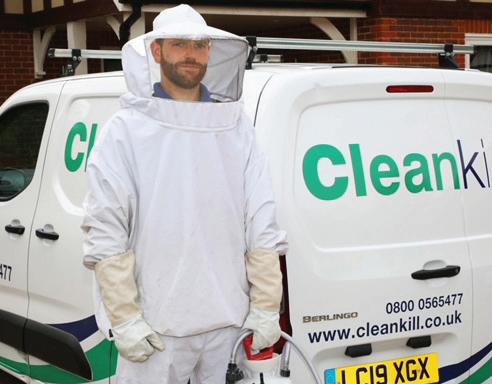

❛❛ Cleankill is proud of the way it works with other businesses ❜❜
DISCLAIMER:
All views stated here are those of the author and do not necessarily represent those of this publication
The debacle over the NatWest ‘debanking’ of Nigel Farage has dramatically shone a spotlight onto the ‘woke’ practises of corporations, in this case, banking.
What on earth has happened that banks feel it is their right to decide which customers’ opinions they agree with and which they don’t? Do not confuse this with PEP (Politically Exposed Persons) for whom banks have an extra duty to run checks – although this was the first excuse given in the Farage debacle.

That excuse fell at the first hurdle when NatWest CEO Alison Rose spoke to the BBC Business Editor, Simon Jack at a correspondents’ dinner and mentioned that it was due to Farage having dropped below the wealth threshold for Coutts. That is a clear breach of confidentiality and she was forced to resign, followed shortly thereafter by the Coutts Chief Executive, Peter Flavel, after he called Farage a ‘disingenuous grifter’ - a very professional way to speak about a Coutts customer!
The loss of Alison Rose is a great shame as in every other aspect of the job, she had an excellent track record.
It now appears banks have been up to this for years, and it took Farage to bring it to light. I have no time for Farage,
but l will defend his right to a bank account, and his own views, to my dying breath – and that of all others who have views the banks don’t agree with – it’s called FREE SPEECH.
Many other cases have come to light such as: Claire Fox, life peer and former Brexit Party MEP; Konstantin Kisin and Frances Foster’s Triggernometry podcast; Richard Tice’s Reform Party; Stuart Campbell, an SNP blogger with
gender-critical views; Gina Miller’s True and Fair Party; a group of 2,000 parents called Our Duty who oppose gender transitioning of children; Reverend Richard Fothergill, who mentioned that his bank should not be promoting transgenderism, former Chancellor Nigel Lawson’s disabled daughter have all been debanked.
In fact, banks are closing over a thousand accounts per day!

However, Sir Philip Augar, a former member of the Future of Banking Commission, which was set up to make banks more accountable to customers after the 2008 financial crisis, said he did not think cases like Mr Farage’s were widespread. Sir Philip must be feeling rather silly at the moment.

The Free Speech Union has been lobbying the Treasury to stamp out this sinister trend and it looks as though Chancellor Jeremy Hunt will do something. But will it be enough?
As I understand it, the plan is to amend the Payment Services Regulations, prohibiting firms from closing the accounts of customers who are exercising their right to lawful free speech and requiring such firms to set out their reasons in more detail if they do decide to close an account.
The hope is that these changes will enable anyone who is debanked to lodge a complaint with the Financial Conduct Authority or take legal action.
But banks and other payment services providers may simply ignore the new rules, just as they’ve been ignoring the 60 days’ notice rule that states that any customer whom they wish to debank must be given 60 days’ clear notice.
On many occasions, the customer is told that the account is closed on the day of the letter or when their card stops working. At present, they almost never admit they’re closing an account for political reasons or the opinions of the customer, and instead cite nebulous ‘policies’ that often contain hundreds of clauses without being any more specific. I fear that even if the Treasury does change the regulations, companies will continue to debank, quibble over how much the ‘more detail’ rule requires them to disclose, and accept the occasional fine or compensation payment as the price of doing business.
Legislation says a credit institution (legal jargon for a bank) “must not discriminate against consumers legally resident in the United Kingdom by
reason of their nationality or place of residence or by reason of sex, race, colour, ethnic or social origin, genetic features, language, religion or belief, political or any other opinion”.
Nikhil Rathi, Chief Executive of the Financial Conduct Authority, told MPs recently that legislation around payment accounts meant banks cannot “discriminate on the basis of political views”. Farage is set to fight back against that as he has now set up a website for all those that have been treated in this despicable way – www.AccountClosed.org – will at least give Farage something to do and for once, for a worthy cause.
Make no mistake, banks and building societies are increasingly engaged in a culture war against their own customers. They are targeting those who hold what they deem to be the wrong views. Halifax even told customers to ‘close their account’ if they didn’t like its new policy of encouraging employees to wear pronoun badges at work.
In our increasingly cashless society, this is a brutally effective way of cancelling someone and is bound to have a chilling effect on free speech. Like many of the most fiendish forms of censorship, it was invented by the Chinese Communist party.
❛❛
Make no mistake, banks and building societies are increasingly engaged in a culture war against their own customers ❜❜
Ibiza
Ibiza has so much more to offer than partying till dawn, and The Gran Hotel is a perfect example of this; a sophisticated place for people to stay, with sun, sea and a seriously world-class casino experience.

It plays host to the Casino de Ibiza, an absolutely gorgeous venue to drink, dine and put some cash on the line across every type of game imaginable. From slot machines and roulette to poker and blackjack, it has everything you could want from a casino. Open until 6am, it might not have the full 24-hour experience offered by Vegas, but it’s the best European equivalent around.
Fun and games is not just the kids’ territory - especially if you have some money to burn. Here we have a look at some of Europe’s most renowned playgrounds.
By Tess de KlerkLocated in Estoril, Portugal, this opulent casino lives up to its name and stands out as one of Europe’s finest, leaving visitors feeling like they’re living in luxury. The interior boasts elegant decor and a spacious atmosphere, setting it apart from others. Being one of the largest casinos in Europe, it offers top-notch dealers and an impressive variety of games, including roulette. Besides gambling, visitors can enjoy live shows, concerts, and all manner of events in its renowned auditorium. The atmosphere, top-notch dining establishments, and vibrant nightlife make Casino Estoril a magnet for locals and tourists alike, offering an unforgettable and glamorous gaming experience on the picturesque Portuguese coast.

St Julian’s, Malta
Located in sunny Malta with a Mediterranean feel and stunning views, the building itself is grand in size and the exterior design touches give it a real sense of elegance. This is carried through to the interior, where the overall impression is one of true luxury. With plenty of games to enjoy here (such as 300 slots and 15 dice tables) and VIP lounges said to be second to none, Dragonara is a must-visit on the European casino circuit.
Baden-Baden, Germany

This has to be one of the top five luxury casinos in Europe. It has a lot going for it including its beautiful Black Forest setting and the fact that it is part of the Kurhaus BadenBaden resort. Play at night, pamper during the day. The neo-classical building was built over 200 years ago and has hosted table games since the 1830s. These days you can also catch fashion shows, cabarets and all manner of entertainment at this grand old dame.

Monaco
No article about luxury European casinos would be complete without mentioning the Casino de Monte-Carlo. Built in 1863 in Monaco, which is itself well known as a playground for the affluent and famous, this opulence extends to Monte Carlo’s casino, which features an impressive marble and gold facade. Inside is equally elegant with attractive colour schemes that set the luxurious tone. Famous for attracting the famous, you may well find yourself rubbing shoulders with the who’s who.



Enghien-les-Bains, France
Casino Barrière Enghien-les-Bains is located in Enghienles-Bains, France. Situated just outside Paris, it is the only casino in the region. Get stuck in a vast array of gaming options including both the French and American versions of roulette but visitors will also find plenty of other entertainment such as live music and cabaret. The undeniably luxurious interior, complete with modern bars, classic fine dining restaurants, and a comfortably classy hotel, makes for a well-rounded establishment.
We have little choice but to accept that we will all be driving electric (or hydrogen) cars within a decade, whether we like it or not. With Tesla being streets ahead of every other manufacturer, l thought it time we took a look at the latest Tesla model. I reviewed the Tesla S many years ago when it fi rst came out and, begrudgingly, l really liked it.
The Model 3 is an American rear- or four-wheel drive car and is regarded as one of the most signifi cant cars to be released this century - so far. This is Tesla’s ‘affordable’ entry level model, designed to take on the likes of BMW 3 Series, Audi A4 and Mercedes C-Class.

The 3 sits just below the model Y, and in two-wheel drive is priced at £42,990. It
will get to 60 in 5.8 seconds, hit 140mph top speed and travel a claimed 305 miles per charge.
But that is the entry level. Spend more and get the Long Range, good for 374 miles, or the one to buy, the Performance model. It will out-drag a Lamborghini Huracan – and that is really saying something in a car that has no engine, no gearbox and no oily bits and is utterly silent.
It does have its drawbacks, of course. The build quality can be woeful, the dealer network is sporadic in its customer service, and the steering has
all the feel of a wet cotton wool ball. The lithium-ion batteries are fitted low in the car to keep the centre of gravity low and, therefore, with no engine under the bonnet, you get two boot spaces front and back.
You also get a giant touch screen that controls virtually everything – and then a bunch of silliness, such as the option to have a karaoke machine fitted, built-in games, and it will supply you with TV platforms such as Netflix should you get bored with driving it. Of course, the aim of Tesla is to eventually introduce driverless cars so that you can sit back sing your favourite songs or watch a movie. There is even a fart mode should you wish to pretend to be breaking wind. How did we ever live without that?
But it is the linear acceleration that is most impressive. No pistons pounding up and down, and no cogs meshing together to get off the line - just pure,

❛❛ The Performance model will out-drag a Lamborghini Huracan ❜❜
unbroken speed with even the basic model producing 235bhp that will get to 60 faster than a £55,000 Jaguar F-Type.
There is no doubt that the Tesla 3 is a game-changer, and has been since its release in 2017 while all others companies are scrambling to catch up. Is this the car that changed the world of motoring? Probably, although the Porsche Taycan is the finest EV l have ever driven but with the top model costing £152,000, it makes the Tesla look even better value for money.
The real kicker for Tesla is their charging network. Originally dedicated only to Tesla drivers, it is very fast, mostly always worked, there were enough of them around and only Tesla could use them. This has now changed but only if you are equipped with a CCS connector.
As a motoring journalist, l find electric cars dull to review as they are all the

MODEL TESTED:
Tesla Model 3 AWD Long Range



POWER: 235bhp
SPEED: 0-62mph 5.8 seconds
TOP: 140mph
RANGE: 350 miles
PRICE: £48,435 - £61,435
same in 85% of ways, and with so few moving parts, it comes down to price, performance and space.
It’s impressive no doubt but a tad dull but then l am a weirdo. l love the grunt, the noise and the smell of a high-
powered petrol engine with a close ratio gearbox, low centre of gravity, fat tyres and an exhaust note that makes your ears bleed.
l will, of course, go the way of the dinosaurs.
❛❛ It is the linear acceleration that is most impressive. No pistons pounding up and down, and no cogs meshing together to get off the line –just pure, unbroken speed…❜❜


The remarkable EQC SUV is the future of electric driving. With its surprising range and innovative driver assistance features, combined with extensive charging points across the UK, it represents a whole new way to drive electric.
Wherever your journey takes you, the advanced driver assistance systems in the EQC make for a more comfortable and safer driving experience.
And right now, you can get the EQC SUV at 0% APR* Representive. Plus, until the 30th September there’s an additional £3,600** saving. Discover luxury every day with the new EQC SUV at Sandown Mercedes-Benz.
For more information please contact the team at Sandown Mercedes-Benz on 0330 178 1801.














Never interrupt someone doing something you said couldn’t be done Amelia Earhart, pilot

The first graduates who took advantage of Dynamic’s exclusive offer have received their certificates. Female readers can sign up for the University of Brighton’s Help To Grow course – FREE OF CHARGE.
(Normally £750)
12.4%
The percentage of Indian female commercial pilots – the highest in the world, compared to 5.1% globally
News
6 Upfront: The top international news stories involving women in business
20 In The Right Direction: Good news stories from around the world

Spotlight
22 Highlighting two female business leaders who ought to get more recognition that they currently receive
Health & Wellbeing
24 Tanya Borowski reveals the secret to cruciferous vegetables’ superfoods status
Further reading
26 Yvonne Guérineau helps business leaders to strengthen interpersonal office relationships
Art Scene
28 Celebrating the works of Adela Powell
Girl Torque
32 Fiona Shafer reveals a disturbingly common pattern –being patronised by car salesmen
What’s On
34 A brief snapshot of art and culture cross Sussex and Surrey
Dame Alison Rose
Dame Alison Rose, author of the seminal report which bears her name, has resigned as CEO of NatWest after her public declaration of Nigel Farage’s banking status
PUBLISHER: Maarten Hoffmann maarten@platinummediagroup.co.uk
EDITOR: Tess de Klerk tess@platinummediagroup.co.uk
MOTORING EDITOR: Fiona Shafer fionas@platinummediagroup.co.uk

COMMERCIAL DIRECTOR: Lesley Alcock lesley@platinummediagroup.co.uk
EVENTS DIRECTOR: Fiona Graves fiona@platinummediagroup.co.uk
EVENTS MANAGER: Žaneta Bealing zaneta@platinummediagroup.co.uk
HEAD OF DESIGN: Michelle Shakesby design@platinummediagroup.co.uk
SUB EDITOR: Alan Wares alan@platinummediagroup.co.uk
WWW.PLATINUMMEDIAGROUP.CO.UK
Don’t hold back because you think it’s unladylike. We shouldn’t be shamed out of our anger. We should be using it
Jessica Valenti, writer
• Personal finance advice
• Retirement planning
• Business support








• Generational planning
• Tax year-end advice








I’m proud to represent both male and female clients. And, while it goes without saying that both can experience the same stressors, there’s no avoiding the fact that women face several unique challenges.

My 20 years’ experience has shown that women can therefore greatly benefit from highly personalised financial advice, which takes these challenges into account. This is why I’m so passionate about empowering women with the confidence and tools to help them achieve their long-term financial goals.

So, whatever your financial journey so far, let me give you the guidance, support, and stability to help you plan a happy and financially secure life.

It is a pleasure to welcome you to the August edition of Dynamic. is month’s big story looks at the remarkable founder of Bumble, Whitney Wolfe Herd. Whitney created a much needed, more empowered space for women in the dating world – thank you, Whitney!
Closer to home, we read about Dame Alison Rose, former CEO of NatWest, who had done so much to assist women in business. Her career had been exemplary up until the point of her unguarded chat which led to her resignation. Personally, I have to wonder if she was held to a higher standard than some of her male counterparts had in the past? After all, there have been many a foot put wrong by male banking bosses who didn’t lose their jobs –Ross McEwan, anyone?
Juliet Turnbull from 2to3days tells us what is needed to make the o ce environment work for us, while we hear from the rst graduates of the fantastic University of Brighton Help to Grow management course, with all female places being sponsored by Dynamic, ensuring that the course was free of charge. Keep applying as there are still paces available for later in the year.
Amongst our regular features, Spotlight continues our theme of amazing women, while I share with you all about my recent trip to Lesvos in our travel section – and don’t miss the beautiful pieces from Kellie’s gallery in our Art section.
We hope that you enjoy this month’s Dynamic Magazine, and, as always, let me know of any topic that you would like covered in our pages. Spotlight is where we get the opportunity to shine a light on someone –so let me know where you would like to see it shine.
Editor, Dynamic Magazine tess@platinummediagroup.co.uk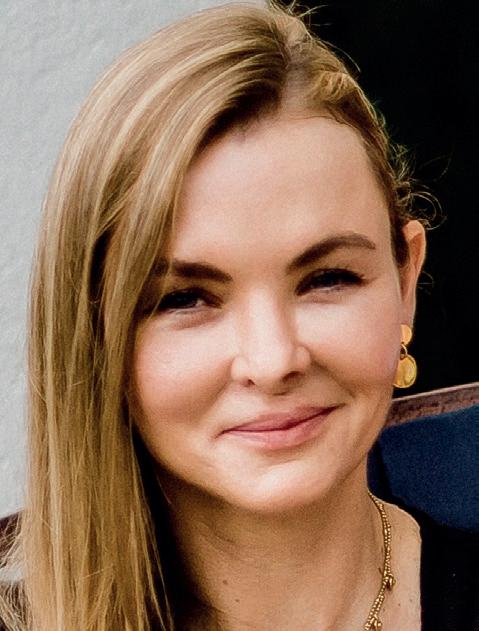

In a move on a subject constantly reported in Dynamic, the venture capital industry has come under fire from MPs for its ‘unacceptable failure’ to invest in businesses located outside London or south-east England, or those run by women and ethnic minorities.
With data that surprises no-one, enterprises founded exclusively by women received just 2% of all venture capital funding last year. That figure was even smaller for investment going to companies led by black or other minority ethnic executives.
Parliament’s cross-party Treasury committee criticised the unfair allocation of funding revealed by the diversity statistics, and is urging the sector to implement rapid change, while calling on the government to intervene, as well as offer greater transparency into reporting this data.
Around a third of US women in heterosexual relationships earn more income than their spouse, yet only half of those women breadwinners say they take the lead on financial responsibilities, according to study carried out in 2022 by investment banking company, UBS. The survey of 1,400 women investors across all ages who were very comfortably off found that less than half of women said they preferred being the primary earner (compared to 87% of male primary earners), and 48% of women breadwinners feel that financial decision-making is less natural for them compared to men. Respondents also said that friends and family often assume that men are the primary earners, with half of those women pointing out they have never corrected them.
League Two club Forest Green Rovers has appointed the first woman to lead a professional men’s football side. Hannah Dingley will take the position as caretaker head coach, after joining the club as a coach four years ago. She remains the only woman in charge of men’s English Football League Academy. During her tenure at the club, Ms Dingley has also initiated the launch of the FGR Girls Academy in 2021, which develops female players. Dale Vince, chairman, Forest Green Rovers, commented: “Hannah was the natural choice to be first-team interim Head Coach - she’s done a fantastic job leading our Academy and is well aligned with the values of the club.”
■ Whilst a commonly used phrase in football, ‘Gaffer’ would be an odd choice of address for Hannah Dingley. The word is a contraction of ‘godfather’ or ‘grandfather’, and used to denote seniority or respect.
❛ ❛ A girl should not expect special privileges because of her sex but neither should she adjust to prejudice and discrimination
Betty Friedan

Despite record numbers of female entrepreneurs starting a business in the UK last year, the number of women applying to business awards is still less than half the number of men. Using the unique data unearthed by startups.co.uk from the past three years, the results paint a depressing picture when it comes to business awards. Businesses with a female founder make up, on average, 23.5% of business award applications. That’s less than half the number of male founder applicants (60%).
The research suggests that confidence, not lack of opportunity, is the biggest barrier to female entrepreneur victory. This is something Platinum Media Group, through not just the Dynamic Business Awards, but its regional awards as well, is seeking to address.
The most popular workplace demand from employees globally is remote working. With just under two million annual searches, it would appear that workers value flexibility in their workplace above other factors.
Carrying on the trend of work flexibility, is work-life balance. This year, employees value a workplace that offers work-life balance.
CSR comes in at third. The number of searches highlights that employees want employers who align with their values and ethics.
Research from William Russell, an international insurance provider, reveals the countries with the highest percentage of female representation across business and government.

Austria leads the way. It has had three female heads of state and government, while 34.6% of the country’s board members (on listed companies) are women. It also has 40.4% of parliamentary seats occupied by women.
In second place is the UK, which has had three female prime ministers, has a 37.8% share of women on business boards, and 34.5% of the MPs in the House of Commons are women. Argentina is in third, which has 44.8% female membership in its lower house, the Chamber of Deputies. Argentina has also had two female presidents.
I raise up my voice – not so I can shout but so that those without a voice can be heard… We cannot succeed when half of us are held back
Malala Yousafzai
Girls are capable of doing everything men are capable of doing. Sometimes they have more imagination than men
Katherine Johnson

My ambition comes from abusive relationships. I engineered an ecosystem of healthy male relationships in my life
Whitney Wolfe Herd
For most women looking to date, the real world is a scary enough place. Online dating is not much better and, to many, offers little respite. Trolls - male and female - are emboldened by their notional anonymity. Verbal, emotional, misogynistic, racial abuse – and this is across all social media platforms - are rife, with little thought given to the targets of those trolls.
In order to partially counter-act this, why not give women the power on dating sites and apps? Let them make the first move. Imagine setting one of the most powerful dating sites up to do just that, and still be on the receiving end of pathetic, vile hatred.
Whitney Wolfe Herd founded Bumble Inc. – against a backdrop of unwanted, bullying behaviour that had been foisted upon her, professionally and personally – in an attempt to regulate and re-balance online behaviour. In so doing, it made her the youngest self-made billionaire in American corporate history. Dynamic takes up the story.

hitney Wolfe was born in Salt Lake City, Utah on July 5th 1989. Her parents are of mixed religion; her mother is a Catholic, her father Jewish. She attended Southern Methodist University in New Mexico, where she majored in International Studies.
She has considered herself a feminist from an early age, telling e Times that she disliked how Utah’s dating culture was dominated by men — women were expected to wait for them to make the rst move.
She started life in commerce at a fairly early age. At the age of 20, she started a business selling bamboo tote bags to bene t areas a ected by the 2010 Deepwater BP oil spill which had ravaged the ecology in the Gulf of Mexico and its adjacent shorelines.
Wolfe Herd also partnered with celebrity stylist Patrick Aufdenkamp to launch the non-pro t organisation called the “Help Us Project”. ese bags received national press after in uential celebrities were photographed with them. Soon after, she introduced a second business with Aufdenkamp called Tender Heart, a clothing line dedicated to raising awareness around human tra cking and fair trade. After graduating, Wolfe Herd traveled to Southeast Asia where she worked with orphanages.
In 2012, aged 22, Wolfe - as she still was then – joined the startup Cardify in West Hollywood, California, a project led by Sean Rad. e project was later abandoned, but she co-founded, along with Rad and Justin Mateen, the development team for the dating app Tinder (previously known as MatchBox) with Rad and Chris Gulczynski.
Wolfe became vice president of marketing for Tinder.
e name of the app was her idea, inspired by the notion of tinder, when lit, sparks into a ame – the appropriate allegory for a new relationship.
However, despite the company’s growth and success, Wolfe resigned from Tinder in April 2014 due to growing tensions with other company executives. In short, sexual harassment. She had had an on-o relationship with Justin Mateen, the president of marketing at Tinder – e ectively, her boss.
On June 30th 2014, she led a lawsuit alleged that Rad and Mateen had engaged in discrimination, sexual harassment, and retaliation against her, while Tinder’s corporate supervisor, Sam Yagan, did nothing.
e abuse - verbal and emotional – she received from Mateen after the relationship went sour, combined with lack of support made her feel she had no place in the company. She reportedly settled for over $1m as well as stock later that year.
Her run-ins with the Match Group, parent company of Tinder, had not nished yet.
Having received online hate, Wolfe started putting together her ideas for a female-only social network centered around compliments which was to be called Merci. Even though she didn’t want to go back to the dating industry initially, Andrey Andreev, founder of Badoo, contacted her about creating a dating platform and partnered with her.
In late 2014, Wolfe moved to Austin, Texas, and founded Bumble, a female-focused, female-friendly dating app. She had planned to name the app Moxie, but this name was already taken.


It was Andreev who suggested she get back into the dating space, and the pair eventually formed a partnership in which Andreev would receive 79% ownership in the company following an initial investment of $10 million along with additional investments and Wolfe Herd would serve as founder, CEO and 20% owner.
•
March 2019:
• Named in Forbes ‘30 Under 30’ list... 2018
• ...And again the following year
• Testified before the Texas House Criminal Jurisprudence committee about the prevalence of unsolicited explicit photos sent to female users on dating applications.
November 2019
• Made CEO of MagicLabs, later to rename itself as Bumble (a more commonly recognised brand name)
Wolfe Herd’s personal value was estimated by Forbes at $1.5bn, making her the youngest self-made female billionaire in American corporate history at the age of 31
As part of the agreement, the new company would also utilise Badoo’s infrastructure and Andreev’s consulting. After the partnership was established, the pair recruited fellow Tinder departees Chris Gulczynski and Sarah Mick to design the interface and help launch Bumble. It was launched in December 2014.
Along the way, Bumble had to settle with Tinder following accusations of plagiarism in the user interface experience. It has also had to settle in regard to its payment and subscriptions policies. As with most corporate stories, it’s only ever the lawyers who win.
In November 2019, Bumble’s parent company MagicLab was sold to the private equity rm e Blackstone Group, with co-founder Andreev relinquishing his entire stake in both Bumble and Badoo. Wolfe Herd became CEO of the newly acquired MagicLab (later renamed Bumble, in a nomenclature swap-around), valued at $3 billion, and received an ownership stake of approximately 19% of the company.
2021
Founded: 2014
Employees (2022): 950
Position in the market (US): 2nd
Market share in the US (2022): 19%
Monthly active users: 12.3m
Paid users: 1.35m
Turnover (2020): $360.5m
Average revenue per use: $27.75
In February 2021, Bumble ‘went public’, and raised $2.2 billion through its Initial public o er (IPO), and the company had a valuation of over $7 billion. Bumble was listed on the Nasdaq exchange, with shares initially valued at $43 but increasing to $76 on its opening day, valuing the company at more than $13 billion.

Wolfe Herd’s personal value was estimated by Forbes at $1.5bn, making her the youngest self-made female billionaire in American corporate history at the age of 31. However, it was reported on the day of the IPO, Whitney Wolfe Herd retired to her hotel room, and burst into tears. Not so much at the realisation of her assets and wealth, more at the vindication she had felt for her part in the growth of something so powerful. But Wolfe Herd was also annoyed at the way her story was being told.
Her success at Bumble, billed as the dating app where women “make the rst move,” had cast her as a vengeanceseeking woman; angry at the way past relationships hadn’t worked out. Bumble itself has been labelled, ‘the feminist Tinder’. Much of the coverage focused on her experience years ago as a co-founder at the dating app Tinder. She had succeeded out of the ashes of her own humiliation - a company vice-president who’d had to resign in order to maintain her integrity and dignity.

2022
• Forbes listed Wolfe Herd at number 33 of the top 100 “America’s richest self-made women,” up from number 39 in 2020
On the day she was supposed to be talking about her empire, Wolfe Herd found herself describing the men she had endured before building it. Her history of toxic relationships, all whirling around the corporate misogyny of tech – is the principle reason why Bumble was founded, and exists today.
Wolfe Herd had designed the app so only women could send the rst message when users match on the platform. In an online dating landscape where women, and particularly women of colour, are routinely bullied and harassed, Wolfe Herd set out to build the closest thing to a safe space for online romance.
“Honestly, my ambition comes from abusive relationships,” Wolfe Herd told Time Magazine the night before the IPO. “I never had this healthy male relationship until I created it. I engineered an ecosystem of healthy male relationships in my life.”
Wolfe Herd is only 34 now, and her company continues to expand organically and through acquisitions. ere is still plenty more to be heard (pun intended) from her.

The Rose Review was a seminal piece of work on the empowerment of female business owners
As we are all aware from the wall-to-wall media coverage, the CEO of NatWest Bank has been forced to resign over the ‘debanking’ of Nigel Farage.
She was, of course, left with no option as making unguarded comments to a journalist (of all people) was unwise in the extreme and broke the cardinal banking rule - all customers’ details are strictly private and con dential (even if it is Nigel Farage!)
e documents put before the Coutts Wealth Reputational Risk Committee, made public by Farage, referred to him, among other things, as a “disingenuous grifter”.
Banks should never have the right to debank anyone just because they do not agree with their views, opinions or political stance - that is not their job and nor should it ever be. And perhaps this was the problem that led to this disaster – was Rose trying to make the bank too ‘woke’?
She was once the darling of the FTSE 100. A longtime NatWest employee, Alison Rose spent 27 years working her way up from graduate trainee to become the group’s rst female Chief Executive in 2019.
e ambitious banker was meant to be a breath of fresh air for the beleaguered group – then known as Royal Bank of Scotland – which had su ered signi cant blows to its reputation after a string of scandals and a near-collapse that led to a £45bn state bailout at the height of the 2008 nancial crisis.
Rose wasted no time making sweeping changes, including ditching the near-300 year-old RBS name in a bid to refresh its image three months into her tenure.
“Everything she did was centred on how it a ected business,” a colleague at NatWest said. “She was 100% laser-focused on what decisions meant for customers, shareholders, for the bank. e sense was, if it doesn’t do something positive, I’m not doing it.”
e episode could not be further from Rose’s usual
air of equanimity and discretion. While she attracted criticism for collecting a £5.2m pay package and cash bonus amid rising interest rates earlier this year, most describe her as a steady, but not ashy, leader. Her peers describe her as “loyal” and “careful”, leaving many surprised by both the scandal and her departure.
e 53-year-old’s fall from grace follows years of government support and accolades. Even before she took over as Chief Executive, she was tapped to lead a government inquiry into female-led businesses that ultimately bore her name. In the 2023 New Year’s Honours List, she was recognised for “services to nancial services” and helping restore NatWest to stability and pro tability.
e Rose Review was a seminal piece of work on the empowerment of female business owners, followed by the bank making £1billion available to support them. It was so successful that they made another billion available.
She was also keen to move women through the ranks of the bank to ensure they had equal opportunities to reach the top jobs. But, in pushing the ‘woke’ agenda, did she step outside of the bounds of banking? No banking institution should be allowed to have an opinion on the beliefs of their clients. If they keep to their credit limits and don’t overdraw, banks have zero right to debank any customer.
With Rose’s rise through the bank from trainee to CEO there could be no better person to run the bank and bring a true understanding of what business needs and especially what female business owners require.
I met Alison on a few occasions and came away with nothing but a very sound opinion of her, and her departure is a great loss to the banking industry, and to women across the country. But she is a far too valuable to be dumped for good and I can assure you that we will see her again in another role, albeit not within banking, and I would not be surprised to see her appointed to a government advisory role in the not too distant future.
The episode could not be further from Rose’s usual air of equanimity and discretion










It’s complicated and it’s changing, states JULIET TURNBULL, CEO and Founder of the UK’s leading female-focused careers site, 2to3days

For decades, pre-pandemic work was, for the vast majority of us, ‘in the o ce’. It wasn’t working for any of us all the time, but it especially wasn’t working for women. e indigestible cocktail of the in exible hours, the long commute, the micro-aggressions, the lack of career growth, cost of childcare and the increasing demands from ageing parents meant that burnout was rife and, as we have witnessed, quiet quitting was sadly on the up.
anks to the rapid deployment of technology and the rise of the diversity, equity and inclusion agenda, changes to more exible working arrangements pre-pandemic were happening. But it was incremental, and it felt a bit like watching paint dry. en in March 2020, Covid struck the world and overnight we swapped an archaic default for an ‘avant-garde’ all in, kids and all, home working.
For a brief spell there was much reported euphoria and news coverage that the o ce was a thing of the past and working from your garden shed or under the stairs was going to be the new norm.
I never bought that argument and still don’t.
We need the o ce. We all do –women as well. However, what has changed is the role the o ce plays in our working lives. For the o ce to work for women, the following needs to be addressed.



e o ce environment mustn’t operate as a petri dish of micro-aggressions that fester and ferment over time. Sometimes, the o ce environment gets to a point when a woman says, ”enough is enough. I can’t be bothered to put up with this nonsense anymore – there is more to life, and I quit.” is behaviour needs to be called out and dealt with. It needs instead to be inclusive. If it isn’t, the women will leave.


Primarily mothers not just want, but need, to be able to integrate their work schedules around the in exible school hours and childcare practices. If they can’t, the women will leave.
It’s the pointless commute for the sake of being in the o ce that has, over time, for millions of people zapped their energy and enthusiasm. For women juggling a demanding home life, it is not an e ective use of their precious time. So, again, the women will leave.
A lot of women work, or want to work, so that they can get away from the neverending humdrum of daily domesticity. Let’s face it, for years men have perfected the art of dodging this one. e o ce, therefore, o ers an amazing opportunity to break away from the monotony of domestic chores and swap it for interesting social interaction, intellectual stimulation and creativity that working from your home o ce can’t. It just isn’t necessary to go there every day.
at’s why hybrid working is here to stay as it supports work life integration, and it empowers everyone to be able to live happy, healthy and productive lives.

After all, an o ce environment that works for a woman will work for everyone.

We need the office. We all do –women as well. However, what has changed is the role the office plays in our working lives
The Help To Grow Management course, run by the University of Brighton’s Business School, celebrated the first cohort of graduates, sponsored by Dynamic.
The mini MBA-style programme is designed for business owners and senior leaders of small and medium-sized businesses, Help to Grow:Management is a 12-week course that helps businesses reach their full potential for growth, resilience and succession planning.
This course, accredited by the Chartered Association of Business Schools, is being delivered by the University of Brighton. Working in collaboration with industry experts and experienced entrepreneurs, the course covers strategies for growth and innovation, digital adoption, leading high-performance teams, financial management and responsible business practices. With the support of an experienced mentor, participants also create a bespoke growth plan for their business.
The total cost of the course is normally £7,500. However, as it is 90% government funded, the cost of enrolling is £750. Dynamic Magazine are proud to sponsors all female places with a 100% discount, rendering the course free of charge – subject to availability.
The first cohort of women who enrolled on the course via Dynamic Magazine’s offer recently graduated at a ceremony
hosted by Dr Adam Jones, Principal Lecturer and Director of Help To Grow, Brighton School of Business & Law, University of Brighton, with graduation certificates presented by Platinum Media Group’s Commercial Director, Lesley Alcock.
Lesley later commented, ”It was a privilege to be able to present these women, all of whom have a passionate desire to improve their business acumen and decision-making, with their certificates. We would love to see the effect this business course has on their companies going forward.”
Dr Adam Jones said “Dynamic Magazine has been a brilliant partner in supporting the Help to Grow Management course here at the University of Brighton. They have helped recruit energetic and vibrant women business leaders who are looking to take their leadership and businesses to the next level.
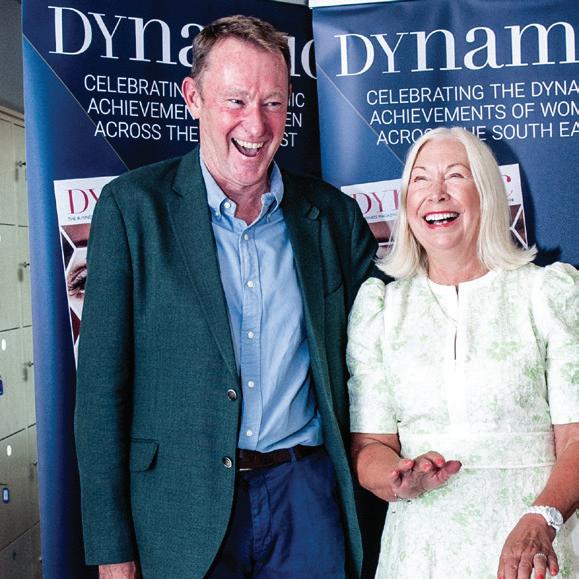
“Through its structured approach to the development of a business growth plan, alongside peer-to-peer workshop groups and a personal mentor, many Dynamic-sponsored women leaders have already started putting changes into place that support business growth and their own development.”
I can’t recommend the Help to Grow 12-week course at the University of Brighton highly enough. The passionate lecturers emphasised repeatedly that, as business owners, we must carve out the time to look strategically at our enterprises. I now take half a day away from the desk every week to review the SWOTs.

The mentor with whom I had 10 hours of one-to-one online discussions has been a major bonus. He is such a
positive influence and reminds me that this journey should be enjoyable as well as challenging.
Every module was valuable and to have the workbooks to continue applying the learning to the business will be of immeasurable benefit. These tools gave me belief in my products and services and have informed my business model iterations throughout the course.
To have the support of such a diverse
and friendly group of inspirational people, plus the help of the University of Brighton’s network of organisations, industry experts and alumni will bring a vast range of benefits not only to my social venture but to many individuals and the wider community.
Thank you to Dr Kane and his team, Maarten and Lesley at Dynamic Magazine and to Pam Gordon of The Franchising Centre who first alerted me to the course.
Tech-Takeback is a not-for-profit electrical reuse company offering refurbished and redistributed tech equipment for the benefit of the local community. There has been huge demand for our unique service over the past two years and we need to grow to keep up.
The Help to Grow programme was perfect timing for me. The sessions effectively guided me through the process of rewriting our business model, and provided a helpful framework for our strategy. As a result, Tech-Takeback has developed a business plan that we feel confident is realistic, financially sustainable and leaves plenty of room for future growth.
Help to Grow has given me the tools to take a more evidence-based approach to planning, which has increased my confidence to develop and deliver my ideas. The input and support of my tutors, cohort and mentor have all been invaluable in increasing my confidence as a change leader. There is a lot to take in, and it does require a significant time commitment, but the rewards are definitely worth it.
I’m very grateful to Dynamic for funding my place and would recommend the course to any female SME leader!

My passion lies in using data to support decision-making and in ensuring we have robust performance measurement in place to identify what is/isn’t working. Enrolling on this course was driven by my desire to help the business grow. I also saw this as an opportunity to enhance my own professional development, so I can achieve my career goals.
Help to Grow Management helped me look at our business with a fresh pair of eyes. The most significant takeaway has been the realisation that SiteVisibility needs to focus on narrowing its services, targeting specific industries and audiences, and developing a unique value proposition. By doing so, we can attract the types of business we want to work with; the businesses we can really help with our unique expertise.
The mentoring aspect of the programme was incredibly valuable for my professional development. It increased my confidence in developing a growth plan for our business, which we can implement going forward.

I thoroughly recommend the Help to Grow Management programme to women leaders who would benefit from external support for their own development and that of their business. Whilst finding time to complete the coursework and attend the peer group sessions was challenging, the effort was definitely worthwhile because I now have a clearer direction for our company.
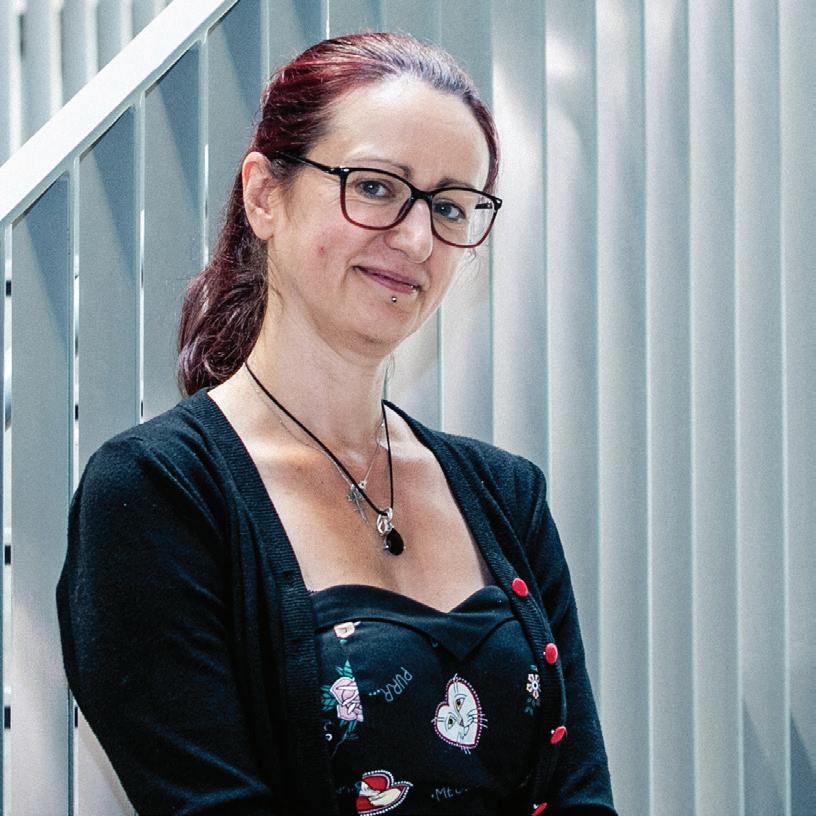
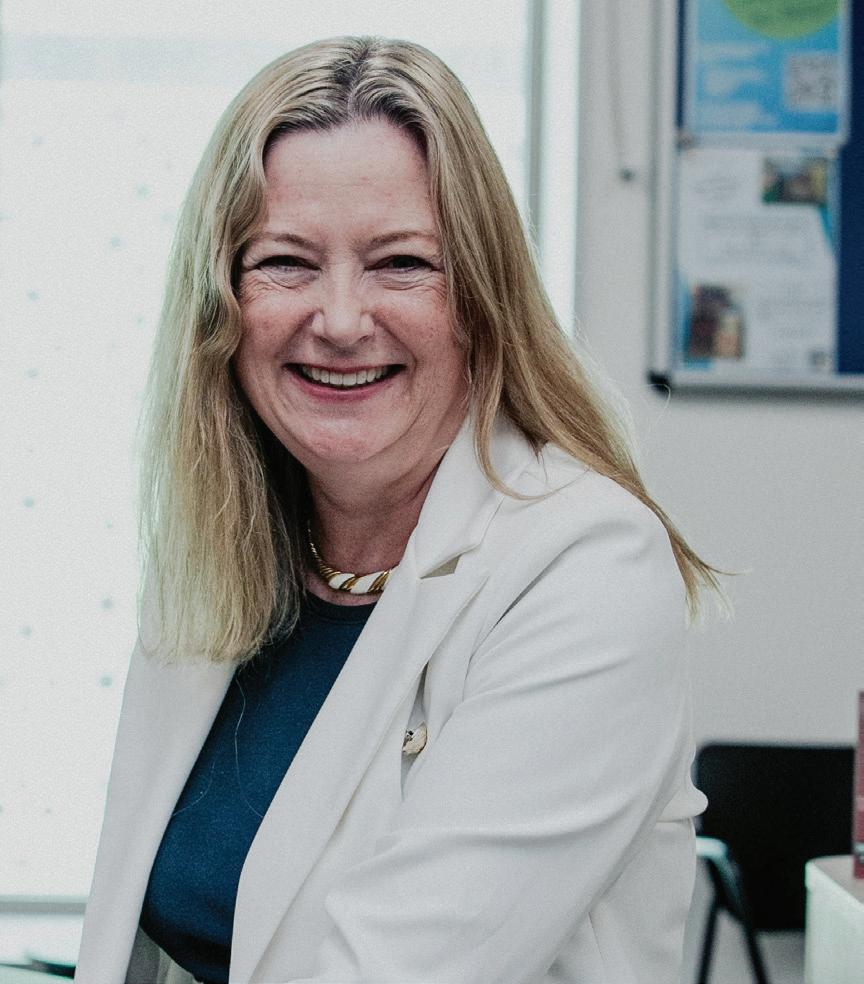
FOR MORE INFORMATION, GO TO WWW.BRIGHTON.AC.UK/HELP-TO-GROW
• If you wish to participate, using Dynamic’s exclusive free offer, enter PLATINUM100 in the promotion code within the online enrolment for the February programme or pre-register at helptogrow@brighton.ac.uk for the April programme.
All September places are taken but there are a limited number of fully funded Dynamic places for women left on the Brighton February and April 2024 programmes subject to availability.

Heath
What have you learnt from the Help to Grow programme?
There is at least one big ‘aha!’ moment per module, but my overall key takeaway is this - what you often perceive as an ‘us’ problem is part of a process of growth that all companies experience, and that there is some scientific support to tackling almost any stage. This course really lifts you out of the weeds into strategic thinking.
Which module was the most beneficial for you and why?
Organisational design was the one that was at the right time and the right place for me.
Also, the peer calls at the end of each week were so helpful, as was that time for reflection and small-group support from the course leaders – they were incredibly valuable and insightful.
Has any aspect of the programme impacted your leadership?
I have found space to be a vulnerable leader, to think about my leadership of change management, and to commit to making time for thinking ahead and helicoptering out of the ‘day-to-day’ as a habit.
What would you say to a female leader thinking of enrolling on the Help to Grow Course?

Don’t put it off just because you are too busy. You will always be too busy. We all have space to learn. We all need support to grow. This course gives you that, and a network of colleagues to go on the journey with.


What are the biggest challenges being a female leader in an SME?

Unconscious bias is a challenge that needs to be talked about more. Being assertive without fear of labelling, and having space to be a serving leader, showing kindness and vulnerability, without the perception that these are weaknesses.
Also, it helps to find your own way through where you can embrace being female and a great business leader as your true self.
In one or two sentences, why should someone buy your products/services?
Adelphi Group of Companies is a familyowned, quality focused deliverer of healthcare packaging, liquid filing, and capping solutions. We excel at delivering subject matter expertise sales support to help businesses find the right path to growth.
Whether you are an R&D company needing the right ready to use premium packaging, a start-up food or beverage company trying to transition to your own manufacturing, or an SME chemical or cosmetic company accelerating by adding another line, we are here on the journey to help you grow.
90% of the programme cost is covered by the Government therefore a total cost of £750. The good news is that for Dynamic readers there are a number of FREE places left for women on the February 2024 Brighton programme when you quote PLATINUM100 when signing up or pre-register for the April 2024 programme at helptogrow@brighton.ac.uk – subject to availability.

















Researchers at the School of Medicine at the University of Virginia (UVA) have discovered a way to identify pregnant women at risk of pre-eclampsia, a serious disorder characterised by high blood pressure and kidney dysfunction which can result in premature delivery, seizures and even death. Complications from the condition are the second-leading cause of maternal death around the world.
The UVA scientists found that they could predict the risk of pre-eclampsia by examining lipids (fats) in women’s blood during pregnancy. The researchers say their finding opens the door to simple blood tests to screen patients.

The Netherlands has become the latest European nation to recognise that sex without consent is rape. Unbelievably, there are still 13 European states that do not define non-consensual sex as rape.
Only now has the Dutch House of Representatives voted to update the law by introducing a consent-based definition of rape. The amendment is expected to be voted into law by the Senate within nine months.

“The Netherlands has taken an important step towards combatting widespread sexual violence and improving access to justice for survivors,” said Dagmar Oudshoorn, director of Amnesty International Netherlands.
The scare of increased coal use after the invasion of Ukraine does not seem to have come to fruition. Analysts at the US-based Global Energy Monitor (GEM), which tracks energy projects worldwide, found there was “scant evidence” of a coal rebound, saying financing of new projects outside of China had in fact plunged to its lowest point in more than a decade.
Writing on Carbon Brief, GEM analysts Alex Hurley and Ryan Driskell Tate said the sector lost $7.7bn (£5.9bn) in planned funding in 2022, when lending arrangements halted the construction of 15 coal plants, including high profile projects in Pakistan, South Korea and Zimbabwe.

COAL USE MAY NOT HAVE INCREASED AS FEARED
Following years of wanton destruction under former president Jair Bolsonaro, deforestation in the Brazilian Amazon has plummeted by 34%, data suggests. The figures cover the six months since Luiz Inácio Lula da Silva took office in January 2023, suggesting he is delivering on his pledge to safeguard the ‘lungs of the world’.

Monitoring by INPE, the Brazilian government’s space research institute, detected 2,649 sq.km of forest clearance this year, compared with 4,000 sq.km over the same period in 2022. Lula has ramped up environmental enforcement, got tough on illegal mining and announced new protected areas for indigenous peoples.
Amy Morin
France is taking action on the 700,000 tons of clothing thrown away each year.
A new ‘make do and mend’ bonus will offer rebates on clothing and shoe repairs in a bid to put the brakes on wasteful fast fashion. An initiative run by Refashion, a trade organisation promoting a circular textile economy, will begin in October 2023. By using sewing machinists and cobblers signed up to the scheme – backed by €154m (£131m) of government funding over the next five years – people will be able to claim back up to €25 (£21) per repair of their clothing and shoes.
Drinking water and sanitation have improved for billions of people over the last two decades, according to a joint report by the World Health Organization and the United Nations Children’s Fund.

It found that 2.1 billion people have gained access to safely managed drinking water since 2000, while 4.5 billion now have access to safe sanitation – up from two billion at the turn of the century. Basic hygiene has increased 8% over the same period, with three-quarters of the planet’s eight billion-strong population now having access.

When you give up comparing yourself to other people, you’ll be free to focus on your best effort
When you can’t fi nd someone to follow, you have to fi nd a way to lead by example
Roxane Gay
In our exclusive Spotlight feature, we highlight women who are doing good things in their community. They’re not always seen but we think they should be.
ISON Founder and CEO Helen Cannon started the company in 2013 after nine years of raising a family of five children. ISON is a roaring success, and to confirm this, Helen was winner of the Company of the Year Award at the Dynamic Business Awards 2023

I founded ISON Travel in 2013 after nine years of raising my ve children. My youngest was two when I knew I wanted to – needed to – get back to my career. However, I couldn’t nd a role or an employer who would o er me the exibility I needed to balance family and work-life, so I decided to start my own travel company.
We celebrated our 10-year anniversary in June, and we are now a company of 62 people, with around 50% working exible part-time hours and over 70% of whom are women. Flexibility is crucial to me, as it is for many, so I make a point of hiring people based on their expertise and skills alone, not how many hours they can do or where they can work from geographically.
ISON Travel provides a exible working environment allowing part time, remote work that suits an employee’s personal situation. Because of this, we have given opportunities to highly skilled people who may otherwise not have been employed. As a result, we have created an amazing, diverse team that helps and supports each other.
It has been an incredible journey since 2013, and especially over the past three years. In 2020, the pandemic had a devastating impact on the travel sector. Although travel was down by 85%, arranging travel became much harder. Many of our competitors made sta redundant or closed their doors for good.
In contrast, I decided to increase investment in sta which led to a loss that year. Whilst this seemed risky, I was con dent that travel would return. When it did, I wanted to be ready with the best team able to support our clients.
As a result, we were probably the rst company in our sector to reach and then exceed 2019 levels, which we did in 2021. We saw exponential growth in 2022 when sta levels, revenue and pro t tripled 2021 levels, making us ve times larger than pre-pandemic.
Despite the business growing at a phenomenal rate, I’m still extremely hands on in the day-to-day running of ISON and, most importantly, I still do the school run nearly every day.
www.isontravel.com
ISON Travel provides a flexible working environment allowing part time, remote work that suits an employee’s personal situation
Having spent her early career at HMRC and the National Criminal Intelligence Service, Clare then worked for ten years as a Quality and Learning Director in Portsmouth. She took up the role of Trust Director for Chichester Community Development Trust in September 2012

I have been fortunate enough to work with an incredible team and stakeholders taking on increased assets in land and buildings, engaging with the community and helping to bring their hopes to life.
Building CCDT from an income of £16,000 in year one, the charity has grown into a national exemplar, employing 11 sta ; taking on six community buildings, two parks, three play areas and public open space. It is also in the process of taking on three further community buildings and four sports pitches in the next two years.
In 2021 we established a trading company within CCDT to run and deliver new projects Including community-based cafés and events and activities. In 2022, the Trust had an annual turnover of £2.3m. ere have been so many high lights over the last 10 years at CCDT. However, the most rewarding so far was securing £1.9m funding for and managing the redevelopment of a disused century-old chapel into a thriving community building supporting all demographics, with a particular focus on those living on no or low incomes.
Other highlights include:
• Finding the funding and managing a £500,000 project to renovate a former housing sales o ce into a mind body wellness space.
• e development of a three-year programme supporting women furthest from the job market into self-employment.
• e creation, design and build of a thriving community garden.
• e creation, design and build of a co working space within a disused and derelict water tower.
• Facilitating the provision, design and build of accessible space to provide a full-time a ordable nursery school.
• Developing a business plan to create and launch a Chichester Bike Project.
• Developing a business plan and the asset transfer of 10,000 sq.ft of disused stables to create a ordable makers spaces. ere are numerous challenges ahead as we navigate cuts in funding, and the need to trade more but there are also so many opportunities, new projects, and new communities in which to develop our services that we are inspired, excited and ready for the future.
www.chichestercdt.org.uk
Building CCDT from an income of £16,000 in year one, the charity has grown into a national exemplar
Cruciferous vegetables, such as broccoli and cauliflower, are well-known for their disease-preventive effects; the main reason is down to a compound called sulforaphane. What does sulforaphane do for the body, asks health specialist
TANYA BOROWSKIThe greatest power sulforaphane possesses is its ability to neutralise toxins, and thereby taming in ammation in your body – and inammation is at the centre of just about every disease and condition: diabetes, heart disease, dementia, cancer, obesity and digestive diseases.
Let’s talk about the health bene ts of sulforaphane before coming back to how to get more of it into your diet. It is well studied to be anti-in ammatory, neuro-protective, and may even protect against ageing and diabetes.


Sulforaphane activates the Nrf2 pathway. This sounds like warlords from a Dr Who episode, but Nrf2 is a protein inside every cell in the body which, when activated, triggers the production of our most potent antioxidant - glutathione. This reduces inflammation and helps the body protect against disease.
Sulforaphane is considered a nootropic (improves cognitive function) because it can cross the blood-brain barrier. Studies in humans – and mice – showed that this compound reduced depressive symptoms and anxiety. Other studies found that it increases neurite growth. This means that it may help damaged neurons repair after injury or from ageing.

Sulforaphane works as an indirect antioxidant in a way that reduces the risk for Type 2 diabetes and its complications, such as neuropathy (nerve damage).

ose with Type 2 diabetes can’t e ectively transport sugar from their blood to their cells, making it di cult to maintain healthy blood sugar levels. A 12-week study of 97 people with Type 2 diabetes examined how consuming broccoli sprout extract — equivalent to 150µmol of sulforaphane — daily a ected blood sugar levels.
e study found that sulforaphane e ectively reduced fasting blood sugar levels by 6.5% and improved haemoglobin A1c, a marker of long-term blood sugar control. ese e ects were particularly strong in participants who were obese with poor diabetes control
Hopefully, you are now even more motivated to eat more broccoli, so I now would like to share some newer information I’ve come across - that the Sulforaphane is activated only when vegetables are chopped or chewed!
Sulforaphane is formed in cruciferous vegetables by the mixing of a precursor compound called glucosinolate glucoraphanin with an enzyme also present in the plant called myrosinase - which transforms the glucosinolate glucoraphanin into sulforaphane. is magical reaction occurs when the plant is damaged (by chewing, blending, chopping, etc.) allowing the two compounds to mix and create Sulforaphane.
Cooking inactivates myrosinase, and as such raw vegetables have the highest levels of sulforaphane. is study found that raw broccoli had ten times more sulforaphane than cooked broccoli - but eating a plethora of raw broccoli is not the most palatable to be fair is it? But there is a way around this:
If you get into the habit of chopping up your broccoli (or sprouts, cauli ower, kale etc) and then wait for 45 minutes, you can then steam or roast your vegetables, and the sulforaphane has by then already been formed, so the enzyme is not required.

Frozen vegetables lack this ability because they are blanched ( ash-cooked) before being frozen. But I have now got into the habit of chopping my cruciferous vegetables in the morning before work and popping them in a bowl in the fridge ready for the evening meal.
• Steaming them for one to three minutes
• Roasting – below 200˚C.
NB: avoid boiling to death or microwaving cruciferous vegetables.
www.tanyaborowski.com
Sulforaphane is considered a nootropic (improves cognitive function) because it can cross the blood-brain barrier
vonne works with business leaders helping them to strengthen interpersonal relationships in their teams so that they can reap the performance and wellbeing rewards this has to o er. She draws on her 20 years’ experience in human resources, her psychology degree, coaching training and her experience of working with a variety of pro ling tools to nd the balance between challenge and support.
One of the biggest challenges that evolving businesses often face is how to take their people with them on that evolutionary journey. Whether the business is growing, restructuring, or rede ning its o ering, it’s unavoidable that
the work people do, and how they do it, will be impacted in some way.
During these times of change, many leaders focus on tackling the ‘hows’ and ‘whats’ in their business, hoping if they are clear and orderly in their communications that people will respond positively.
But instead of the positive response they had hoped for, what leaders often see is relationship challenges rising to the surface. at’s because change or uncertainty can unsettle people and show up in their behaviour towards each other. at’s where many business leaders come unstuck. Rather than stepping up the message of purpose and process,
This book has proven to be effective and valuable in diverse settings. Its principles about human behaviour have helped businesses, non-profits, hospitals, schools, government agencies, and organisations with remote workers.

The Five Languages of Appreciation will show you that not everyone receives feedback and appreciation the same way. You’ll discover what the typical Five Languages of Appreciation are, how you can figure out which one your employees respond to.

One of the biggest challenges that evolving businesses often face is how to take their people with them on that evolutionary journey
they instead need to foster a deeper connection between their people, to help them weather the storm together.
At any time, but especially during times of change, a leader needs to act like a human catalyst, raising awareness of everyone’s needs and wants and facilitating meaningful conversation. is ensures that people feel seen, heard and understood, rather than merely informed about what lies ahead and what is expected of them.
But how do they do that? Leaders need to bring people together and create opportunities to recognise the value individuals bring to the team so they can support each other at work rather than stepping on each other’s toes.
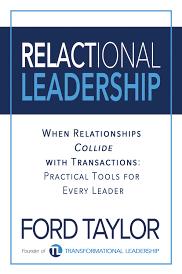 By Ford Taylor High Bridge Books (2021)
By Ford Taylor High Bridge Books (2021)
We fundamentally believe a leader is any person who has influence over one or more people. Therefore, everyone is a leader in some organisation in which they live or work.
Many leaders have been taught how to manage people, yet many have never been taught or given the practical tools to lead people and manage the processes, systems, and procedures around them. By removing constraints within your organisation, learn how you as a leader can unite bottom-line results with happy employees
It involves leaders asking powerful questions and then holding the space for the team to unravel what is really happening in their interactions as well as their reactions to the contextual changes.
e evidence that we bene t from positive relationships in the workplace is compelling, and yet often overlooked, because it takes courage to go deep.

For the leaders willing to take up that challenge and embark on this journey of discovery with their team, there is no shortage of great tools and team activities to support their e orts. It all starts with research.
 By Dr Randy Ross Baker Books (2019)
By Dr Randy Ross Baker Books (2019)
Dr. Randy Ross understands that relationships are core to who we are. Everything we do revolves around our relationships. In Relationomics, Dr. Ross shares the principles and practices to help develop and sustain the relationships that can build and energise teams. The book covers topics such as:
• Becoming a value creator
• Mastering the art of giving and receiving helpful feedback
• Dramatically decrease employee turnover
• Leading beyond self-interest
The Five Languages of Appreciation will show you that not everyone receives feedback and appreciation the same way
August 14th 2023 would have been Adela Powell’s 78th birthday. What better way than to mark the occasion by honouring her and her works.
By KELLIE MILLER
It took me two years to build trust with Adela before she felt I could best represent her work. She questioned me at every encounter with her. She would eye me suspiciously while considering whether to impart her precious heartfelt creations to my care. I loved her ceramics, so I spent time assuring her of that. It particularly helped that I also had a background in ceramics and understood the blood, sweat and tears required to produce her artworks.
Her ceramics were her children, and she was not going to part with her pieces lightly. Equally, she was reluctant to courier her works over concerns about their safe arrival and the delivery costs involved. With that in mind, pieces always got to us through non-traditional routes.
I would get an unexpected phone call and then be required to meet an acquaintance or friend of hers in a car park. Once, I was at an evening arts meeting, and an artist came to me afterwards to say he had been delivered some pieces from one of her neighbours, and they were in his car.
Over the years, our respect grew for one another, and I witnessed her adoration for clay. She merged her love of art and science through the versatility of this material, and you can see how she experimented.
Handling and playing with it allows ideas to surface, producing potentially exciting and unexpected results. At other times external stimuli would set o a chain reaction of ideas followed by considerations of how to express them through the material. Often her challenges were overcoming the technical and aesthetic issues to resolve, develop and communicate the meaning within her work.
Studying Natural Sciences at Liverpool University, she later attended Plymouth College of Art and Design as a mature student.
You can see why she had a quest to align her two passions, which she eloquently achieved – producing forms, vessels and sculptures reminiscent of the natural environments of coastlines, river valleys and moorlands. e surfaces created often re ect the minerals, erosion and decay found there. As a ceramic artist, what Adela Powell naturally conveyed was inspired by nature, landscapes and the sea. Her works examined the layered and eroded rocky surfaces while embracing fragility and the unpredictable. Celebrating the life of Adela Powell, who passed away in autumn 2022, leaving a legacy collection which KMA is proud to present.

As a ceramic artist, what Adela Powell naturally conveyed was inspired by nature, landscapes and the sea



 BY TESS DE KLERK
BY TESS DE KLERK
Lesvos is one of the places I remember having the most liberated times in my early twenties. ose days were formative, really; having recently emigrated from South Africa, a somewhat conservative society, even as little as 20 years ago.
e island was the pinnacle of ‘live and let live’. It gave me a sense of freedom which runs through the character of the rocky island and its ercely independent and creative people.
My friend lived in the capital, Mytilene, and each summer, we would go around in her little beat-up car over weekends, choose a beach, pitch a tent and stay a night - as free and simple as could be. I loved it.

I went back to Lesvos this summer for the rst time in many years; my friend had moved o the island ages ago and other places had beckoned but I have always wondered how the island had weathered the storm of the Greek nancial meltdown and, later, the plight of desperate people arriving on its shores, escaping their war-torn countries.
Lesvos was, of course, the site of the infamous
Moria refugee camp that burned down a few years ago. I remember that, when I visited in the 2000s, the local people were ercely compassionate and hospitable to those who arrived in need at their shores; people did not just accept the law of the land concerning refugees and there were frequent protests against their detainment. People were proud of the statue of Asia Minor Mother, erected in 1922 in honour and celebration of refugees.
Today, things look di erent and not just as a matter of speech. Back then, you could spot people who looked and dressed di erently to local people but today, it’s not so obvious. Despite over 2,700 refugees having arrived in 2023 alone, I did not see any evidence of them; people are locked up in awful Closed Controlled Access Centres (CCAC) which are e ectively prisons. Years ago, the people who arrived on these shores were a trickle while it has now become a storm.
In a way, Lesvos is a magni ed microcosm of various areas of Europe. Authorities have become increasingly cruel and the far right has been rising con dently. Depressingly far-right parties won almost 13% of the national vote in Greece’s elections this year but still, the average person living on the island feels compassion and solidarity with refugees, and help whenever and wherever they can.
Mytilene’s architecture is unique, combining baroque and neo-gothic elements with classical Greek architecture
Lesvos looks di erent in other ways too, slightly worse for wear with too many empty and half-built buildings dotted across the countryside. However, the island still has its charm. Mytilene is still bustling and steeped in a mix of ancient cultures. e island had been conquered and settled by many, making for a long, fascinating history.
Mytilene’s architecture is unique too, combining baroque and neo-gothic elements with classical Greek architecture. You’ll nd grand old mansions neighbouring Ottoman masterpieces, and then traditional stone cottages all on the same street.
Southern parts of the island are lush and green while more northern regions are rocky with the occasional moonlike feel due to volcanic eruptions a long, long time ago. Many villages are still very traditional and very charming. De nitely don’t miss the lovely Plomari, the village of cats and Eresou, the ‘winter village’ of Skala Eressos.
Lesvos is a very volcanic island meaning that most beaches are stone and you won’t nd long stretches of white, ne sand. e largest and most sandy beach is the famous Eressos (Eros is the Greek God of Desire) where Sappho, the ancient Greek lyrical poet who wrote of love and sex between women was born and lived.
It is said that she established an all-female society at Skala Eresou and each summer people ock to the threekilometre sandy beach to celebrate at the International Women’s Festival of Eressos. It is a real celebration, and freedom of expression is welcomed. is little shing village is lovely at any time of the year with good tavernas and a few nice bars and, although it has expanded slightly now, it still has a nice hippy vibe to it.
e island hasn’t changed much since my visits many years ago and I was again charmed by her. It is important to note not to expect much luxury or 5-star travel if you are thinking of visiting Lesvos, it is not about that. It is about visiting a place that is still proudly holding on to its traditions, art and culture.
You won’t nd a Holiday Inn or a Hilton here. Good luck nding a McDonald’s or KFC. What you will nd plenty of is delicious fresh food at very reasonable prices, absorbing history, warm turquoise waters and welcoming, laid-back local people.

• The letter ß in Greek is pronounced as the Latin letter ‘v’. That is why Greeks refer to the island as Lesvos.
• The International Eressos Festival of Women takes place September 10th-20th 2023.
• Lesvos is Greece’s third-largest island – it’s worth renting a car to get around.


The island still has its charm. Mytilene is still bustling and steeped in a mix of ancient culturesDirect from Stansted to Mytilene with Jet2 from £311 return during August and September
This is absolutely not what most women want to hear when buying a car, but that is exactly what happened to my very discerning neighbour.
By FIONA SHAFER, Managing Director of MD HUB
“When I took my Range Rover Evoque for its rst service, I drew their attention to the airbag light being constantly on. I was told it was because ‘you ladies do like to put your handbags on the seat!’ When I needed to get the rst MOT done, which it would have failed, the dealership told me it was a Land Rover issue. Land Rover Assist came to the house and told me that I had been driving the car for three years with the airbag system disabled because of a loose connection. I wonder if a man would have been given the ‘handbag’ excuse?”
Taking a straw poll of experiences from friends, family and business colleagues in recent weeks as to both good and bad car buying experiences, such comments seem to be still frustratingly and unnecessarily commonplace.
is column originated back in 2018, when I was bending Maarten Ho mann’s ear back for the umpteenth time about how badly women were treated in many car dealerships by male salespeople. ey clearly had no idea that women make 80% of the buying decisions in households, and that by not treating women equally when buying cars, they were not doing the trade, car brand or women any favours.
It appeared utterly illogical to me as a business woman as well, as it also meant that both pro ts and reputation would go down the pan as women are exceptionally good at spreading the word when hacked o – especially when it comes to cars.

“Ordinarily I would have walked away from this dealership but they are the only local dealer who sell Minis – a brand to which I am loyal. I have been a customer for over ten years but have had dire customer service. Most recently I seriously enquired about upgrading my current car (having bought ve cars from them previously). I wasn’t o ered a test drive and was just allowed to sit in it for ve minutes. It took almost a week to get a quotation and then they never responded to my query – clearly not interested in a sale.” – Hacked o woman #1
By not treating women equally when buying cars, they were not doing the trade, car brand or women any favours
“Previously, they had sought to conceal damage to cars I have purchased including a signi cant windscreen crack and dent. eir piece-de-resistance was accidentally selling a car I had placed a deposit on to someone else. I always feel patronised and fobbed o by the male sales sta .”
– Hacked o woman #2
“I went to buy a Range Rover Evoque, and the dealer spoke to my husband the entire time, despite me asking questions about the car that I was clearly buying for myself. Misogyny is alive and well at that Range Rover dealership. Sigh” –Hacked o woman #3
“Every time I asked a question he replied to my husband. On the third response, my husband said something along the lines of, “you know, I think you’ve just blown it, mate. is car is for my wife. She is buying it and you should be talking to her. We left.” – Hacked o woman #4
I have too many experiences of my own, including putting a £1,500 deposit down on a secondhand BMW that had just been part-exchanged, and was being taken o to be valeted for me to test drive on the Monday. e car was too low for me in the end and I changed my mind and said that I would

Listen to what her exact requirements are:
• Never, ever presume you can read her mind
• Look her in the eye and only talk to her (not her partner, husband or friend)
• Expect a woman to negotiate with you
• Learn how to speak to women (as obviously car sales people don’t know) as female car buyers are increasing at 21% per year
• Bear in mind that over 74% of men buying cars are heavily influenced by their female partner. This means that over 95% of car purchases are controlled by women
continue to research other BMW models. When I asked for my deposit back, the salesman said he would rather not give it back to me until I had found something else as it would muck up his paperwork. His commission, more like…
But there does appear to be some light at the end of a very long tunnel.
A dear friend, who has worked behind the scenes for almost 40 years in the motor trade at a Vauxhall dealership, has seen many changes, “ e younger generation of salesmen we have now are wonderful. ey are polite and genuinely kind, nothing like the male chauvinistic bunch of the past. We all work as a team regardless of our gender, so maybe times are a changing for the motor trade?”
And ending on a very positive note, one of our MDHUB Advisory Board members commented, “I went to test drive a Tesla, and from the moment we walked into the dealership, the sales chap was excellent. We had a full on conversation about the innovation and ground-breaking thinking behind the vehicles before stepping into one and testing out the 0-60mph (on a suitable road).
“ e dealer was thoroughly engaged – and engaging –throughout the whole experience and it was more like going on an adventure day than a test drive. Ten out of ten, and a massive ‘high ve’ to Tesla”.
Fine dining with a view! Experience Nyetimber’s finest English Sparkling Wines perfectly paired with a 4-course dinner at 450ft.
Experience Includes:
• Four glasses of Nyetimber’s award-winning sparkling wines
• Four-course meal
• Three Brighton i360 pod journeys
• Talk and presentation from Nyetimber Brand Ambassador
Brighton i360, Kings Road, Brighton
September 21st
www.brightoni360.co.uk/tickets/ nyetimber-tasting-sky-dining


brief snapshot
A three day festival featuring some of the UK’s finest acts of the past four decades. Day one - Craig David plus guests; day two - Soft Cell, ABC and Heaven 17; day three Katherine Jenkins OBE and very special guest Russell Watson accompanied by The National Symphony Orchestra.


Wiston Estate Park, Steyning
September 9th-11th
www.wistonsummersounds.com
LYDD
Get Ready for National Dog Day by taking your dog paddleboarding on the eve of the day. A great experience for everyone, treat your dog to an amazing adventure with you. Bring your own SUP or rent one of ours, one-hour session.

Lake 1, Lydd
August 25th
www.actionwatersports.co.uk
Jacq and Kas’s boutique restaurant has gone bust, and telling their oldest friends Adaego and her rich husband Tobin that his investment is toast is only the start of the evening. Cash, class, identity and infidelity are all on the menu. As the last of the expensive wine flows, a dangerous drinking game reveals long-hidden truths and provokes an unspeakable dare.
Chichester Festival Theatre, Chichester

All through September
www.cft.org.uk

Join us for just for a day, evening or for the whole weekend and soak up the fantastic atmosphere of our fabulous Science Centre and Observatory. Lots of fun for families and keen astronomers alike!
It will be a fabulous event with viewing through the telescopes, speakers, planetarium shows, talks about the telescopes, local astronomy societies and family activities. All this plus the fantastic science exhibits and exhibitions.
Observatory Science Centre,Herstmonceux

All through August www.the-observatory.org
Who doesn’t love love? Well, you might be surprised! In Shakespeare’s raucous romantic comedy, deception is rife as wedding bells sound in the air, testing not only the young lovers Hero and Claudio, but also the steadfastly single Beatrice and Benedick!
With plots, pranks and live music throughout, you will fall in love all over again with Shakespeare’s Much Ado About Nothing this Summer!
Brighton Open Air Theatre
August 31st-September 1st www.brightonopenairtheatre.co.uk

A fantastic selection of high quality crafts, the summer borders in full bloom and a special entry price combine to make this an ideal time to visit this garden on the border of Sussex and Kent.
The Sussex Guild, a group of skilled designer makers living in Sussex, will be showing exciting new crafts this year at their 22nd show held at Pashley.


Pashley Manor Gardens, Ticehurst, Near Wadhurst, August 26th-28th
www.pashleymanorgardens.com
Rye’s International Jazz and Blues Festival is back to bring you a wonderful mix of jazz, swing, blues, roots, soul, funk, and Latin music. This year the sensation line-up includes Laura Mvula, Snowboy & The Latin Section, Ruby Turner, Mike Farris, Mario Biondi, Joe Stilgoe and many, more.


Across Rye August 24th-28th www.ryejazz.com





